Buddy Hield Q&A: Pelicans rookie embraces life as professional shooter

Your teams on the go or at home. Personalize SI with our new App. Install on iOS or Android.
Buddy Hield is the rare four-year college player whose game seems to align perfectly with the style of the league at the time of his drafting. An extended stay in Norman, OKla., helped Hield craft a distinctly modern game; his 13.8 three-point attempts per 100 possessions, many hunted against defenses wise to his long-range inclinations, bore resemblance to the work of top professional shooters. There has never been a better moment for Hield to take the NBA leap, in large part because the league has never had a greater appreciation for his most considerable skill.
That registered Hield on the radar of even NBA snobs. Efficient, unapologetic gunners like Hield are figures of interest in the professional ranks—as evidenced by his going No. 6 overall to the New Orleans Pelicans in last month’s draft. The Las Vegas Summer League now amounts to his career’s soft open. Early reviews, though, have been mixed. We caught up with Hield to talk about the frustrations that have come from his shaky play, life after the draft, and the real value of getting buckets.
• Silver on super teams, Hack-a-Shaq | Unlocking mind of Ben Simmons
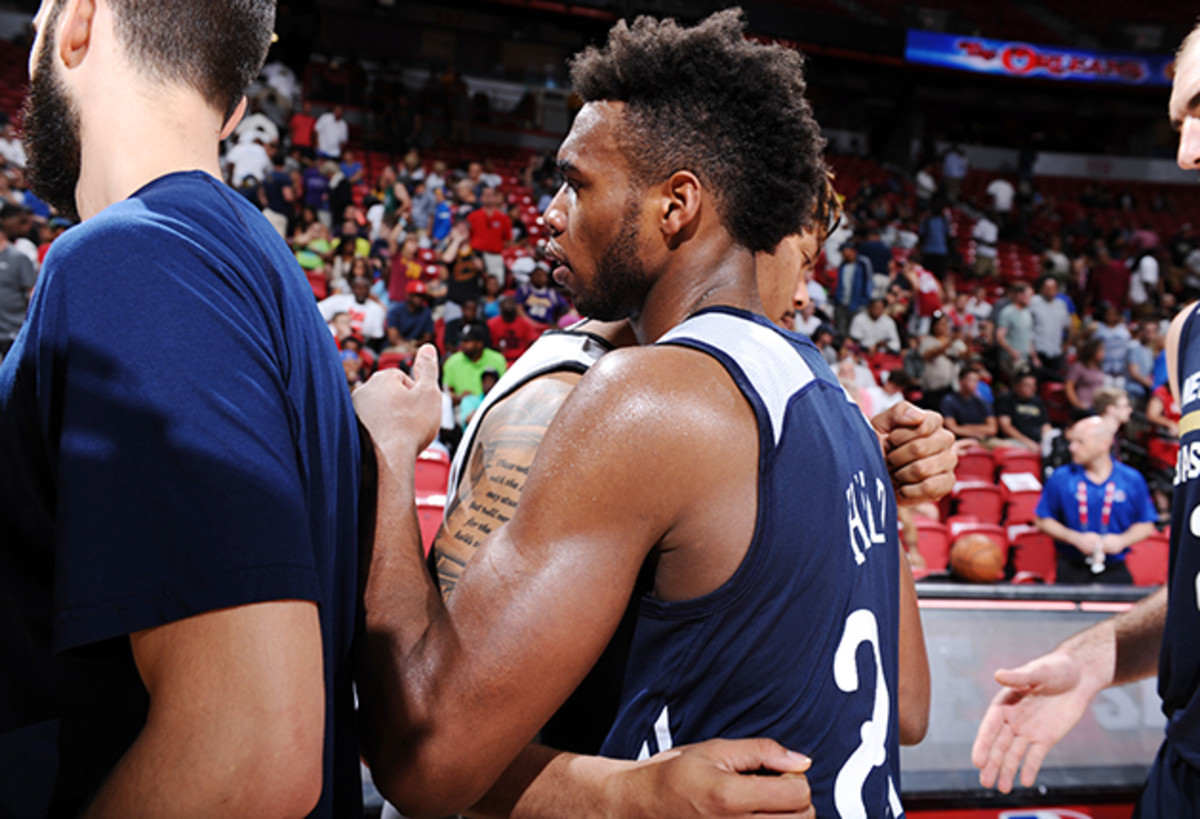
Rob Mahoney: From talking to other people about you and your game, the thing I hear about most—even more than your shooting and scoring—is how hard you work. What do you take pride in, in terms of what you've built for yourself as a basketball player?
Buddy Hield: Putting the ball in the hole. That's what I do: put the ball in the hole. No matter how I get it, just find a way to put it in the hole.
RM: Why is that? Why is that the priority for you?
BH: Number one: It'll make you a lot of money. And then it's just something I love doing. I'm just having fun doing that. It's a blessing, you know what I mean? Most people can't say they put the ball in at a high rate each and every night. So that's my number one goal: putting the ball in, doing it a high rate, and doing it efficiently.
RM: What do you like about playing basketball?
BH: The momentum it brings every day. It's like, every game you never know how a defender is going to play you. You have to be mentally focused. The game is different. So picking your poison in order to get your shots. The college atmosphere was so fun because you know how to get up and down and you have crowds that are so loud, so energetic. I just like the atmosphere.
RM: In terms of the defense trying to figure you out, like you were saying, is there anything that you anticipate seeing in the NBA that maybe you wouldn't have seen in college?
BH: I think I'll just be slowing down and getting to my spots. Try to let the game come to me. It's not like college, but you'll get the ball. You can go get it. You can figure out the spacing and just play. I just have to be smarter.
RM: When I watch you play, it looks like you're talking to yourself a lot on the floor. What is that monologue like? What are you telling yourself?
BH: Motivation. Motivation to be the best I can be, each and every night.
RM: So what motivates you in that way?
BH: I'm broke. I play the game because I love it, but obviously you know you can make money off it. You motivate [yourself] to play well with the higher value things. Nobody's playing for free.
NBA Draft Fashion 2016
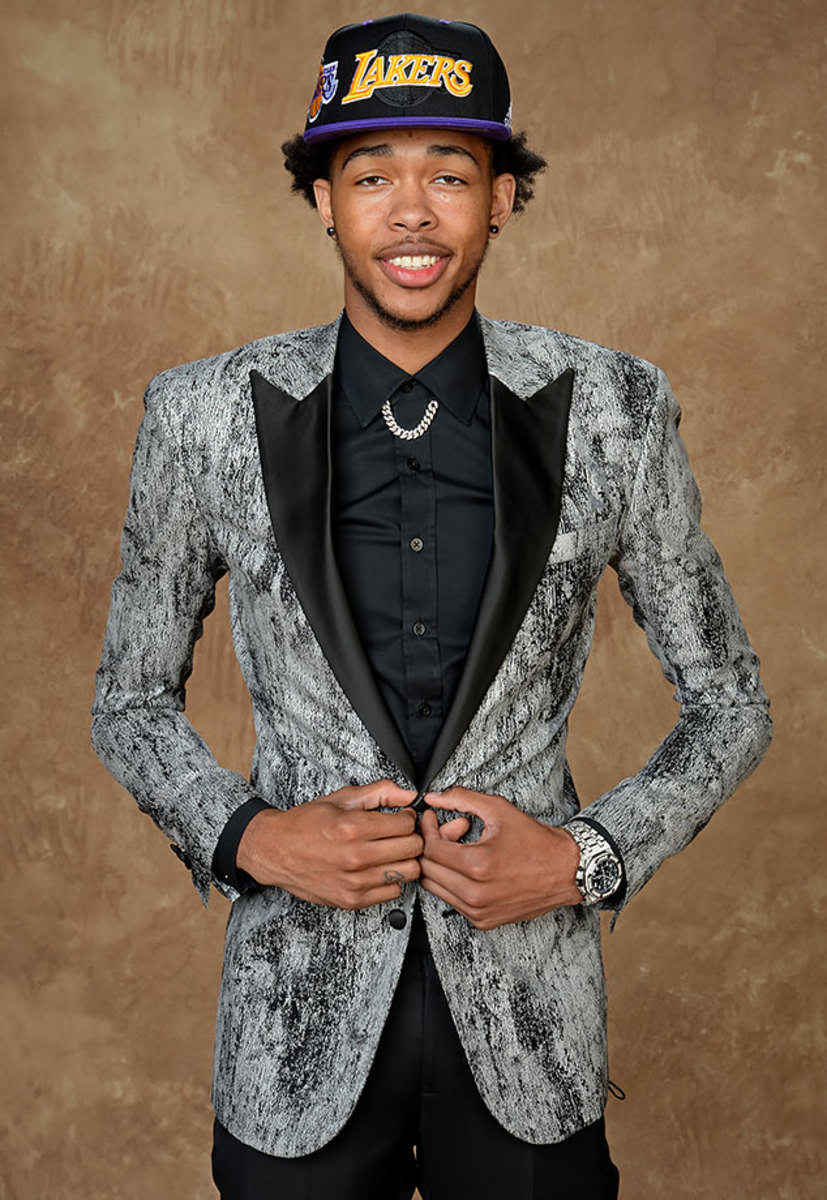
Brandon Ingram
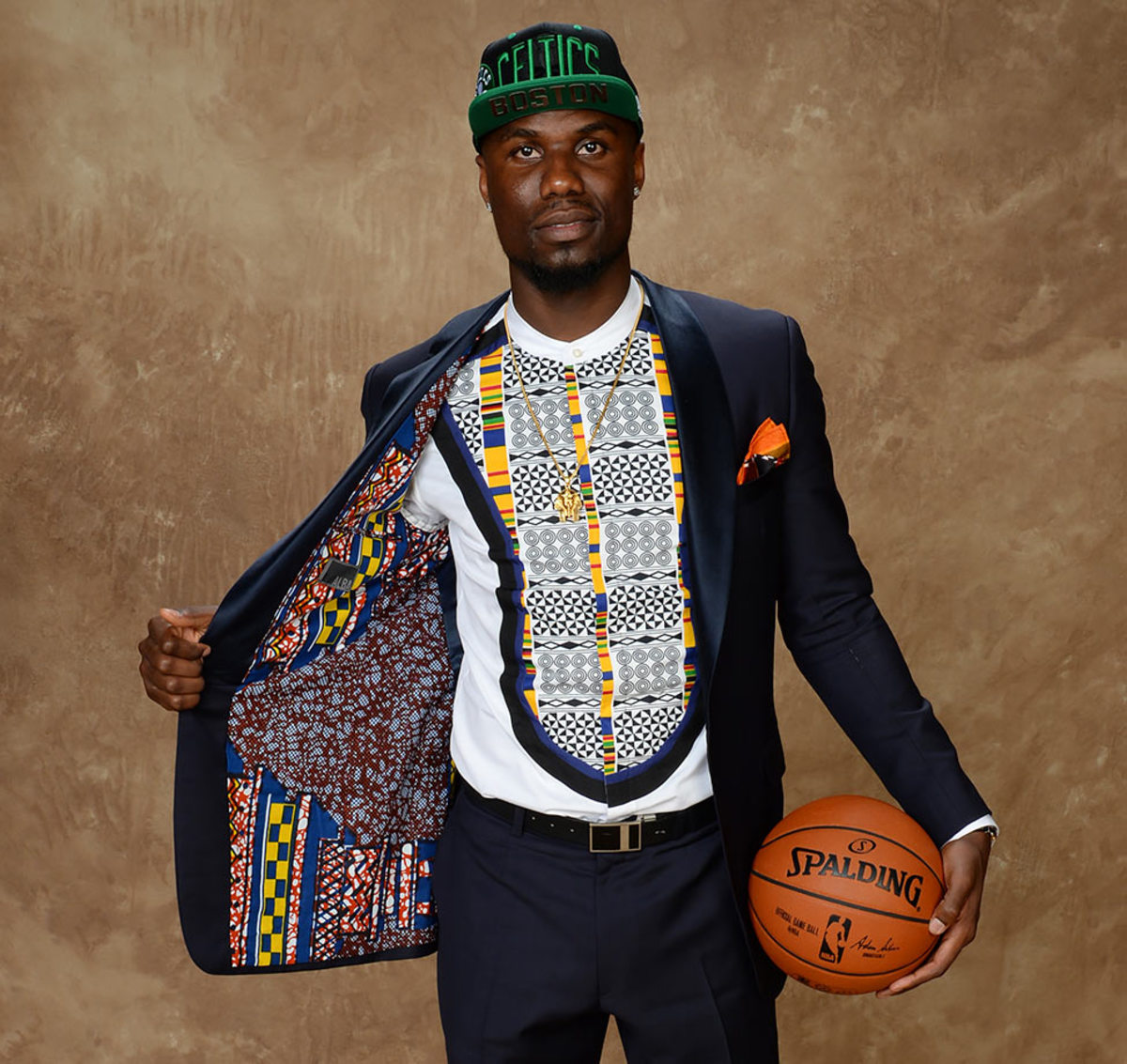
Ben Bentil
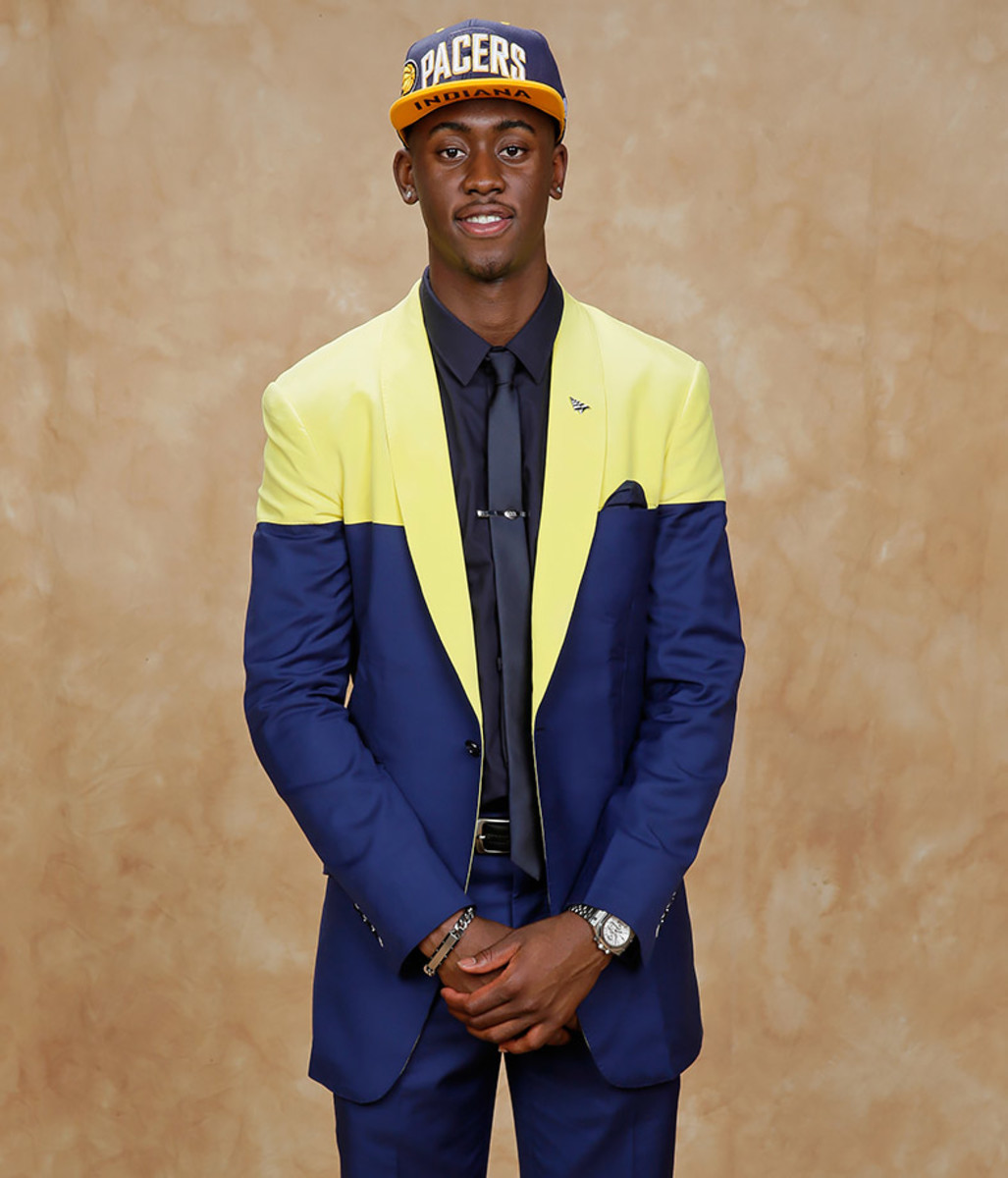
Caris LeVert
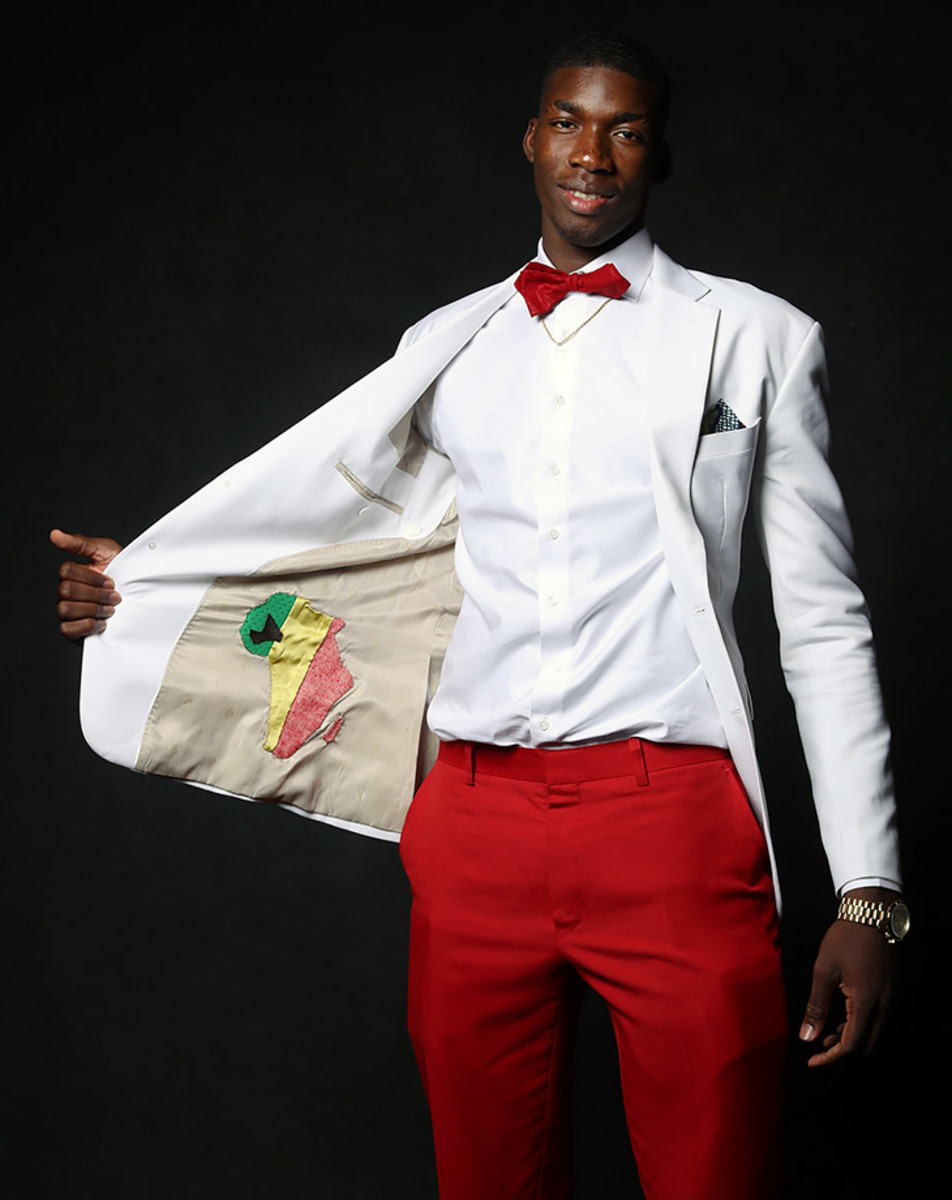
Cheick Diallo
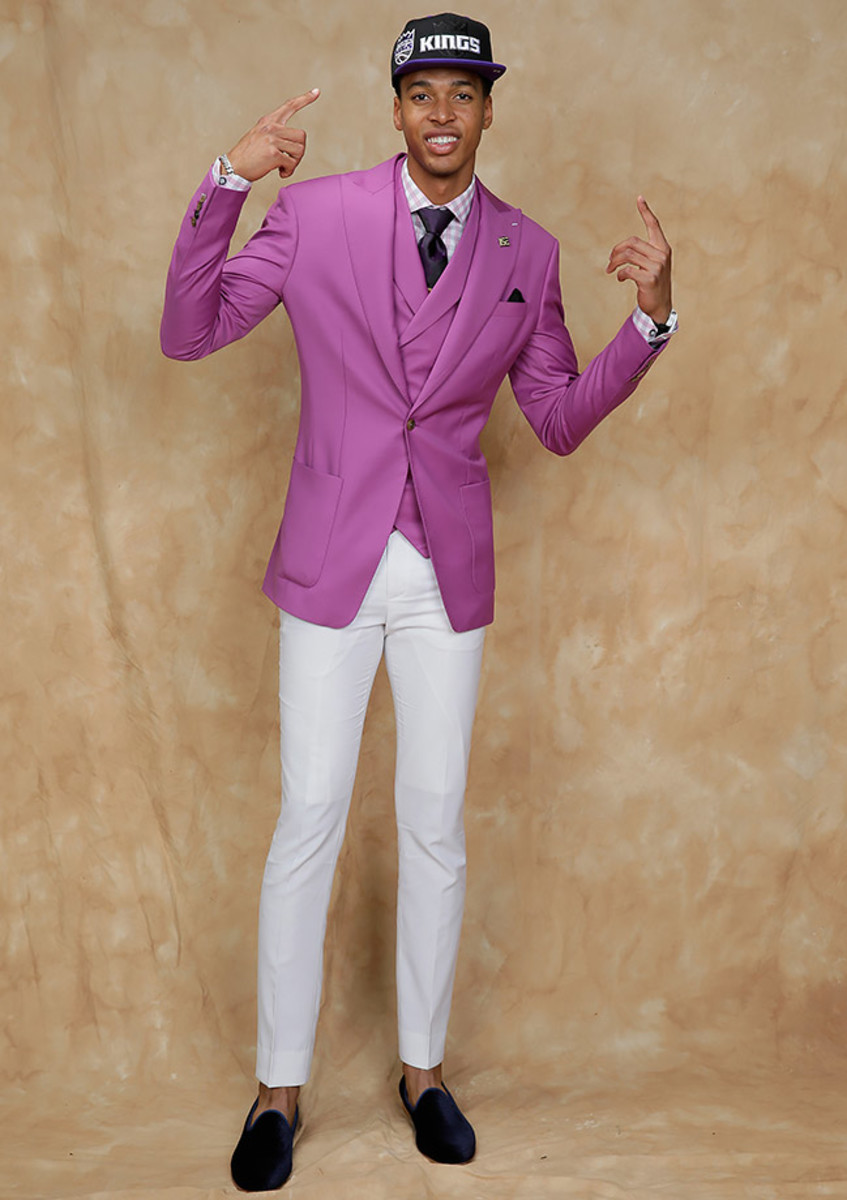
Skal Labissiere
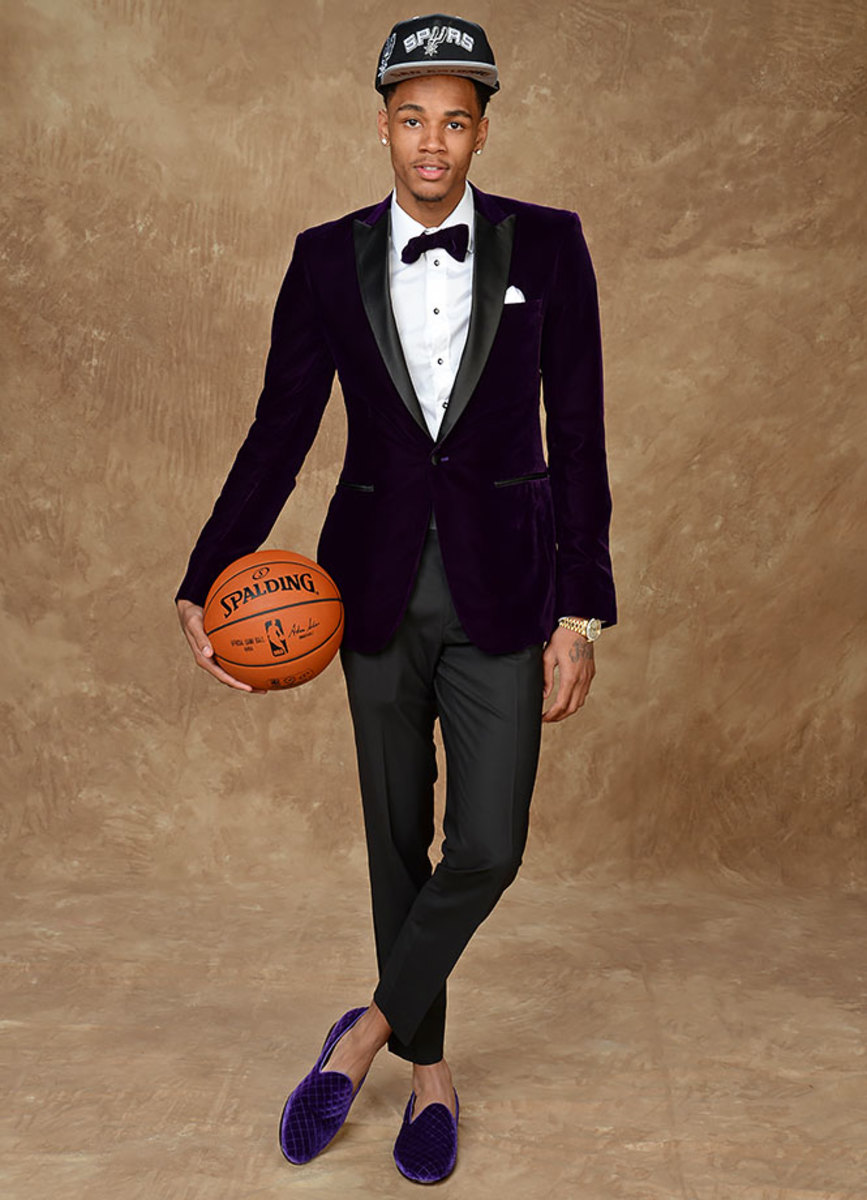
Dejounte Murraye
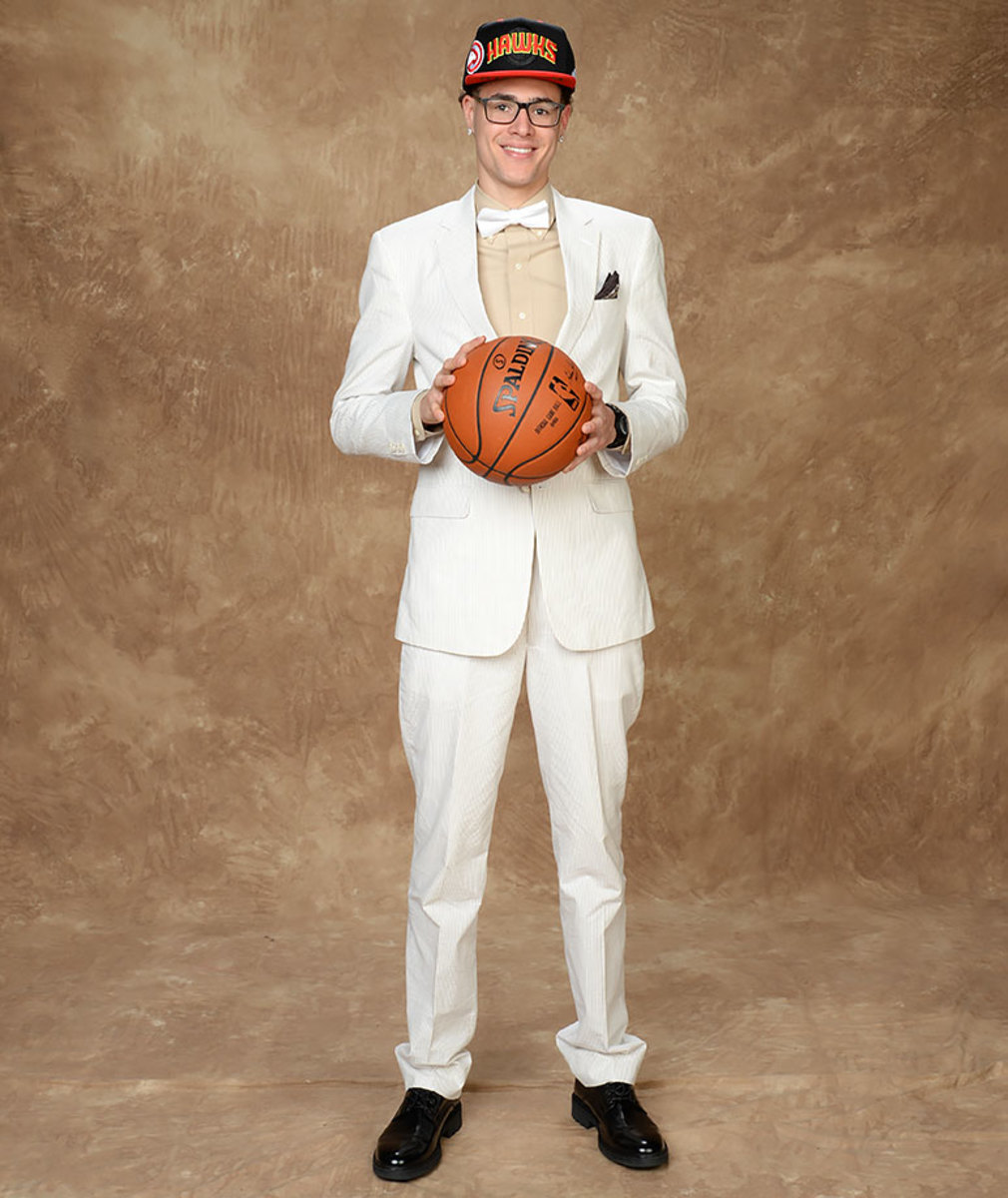
Isaia Cordinier
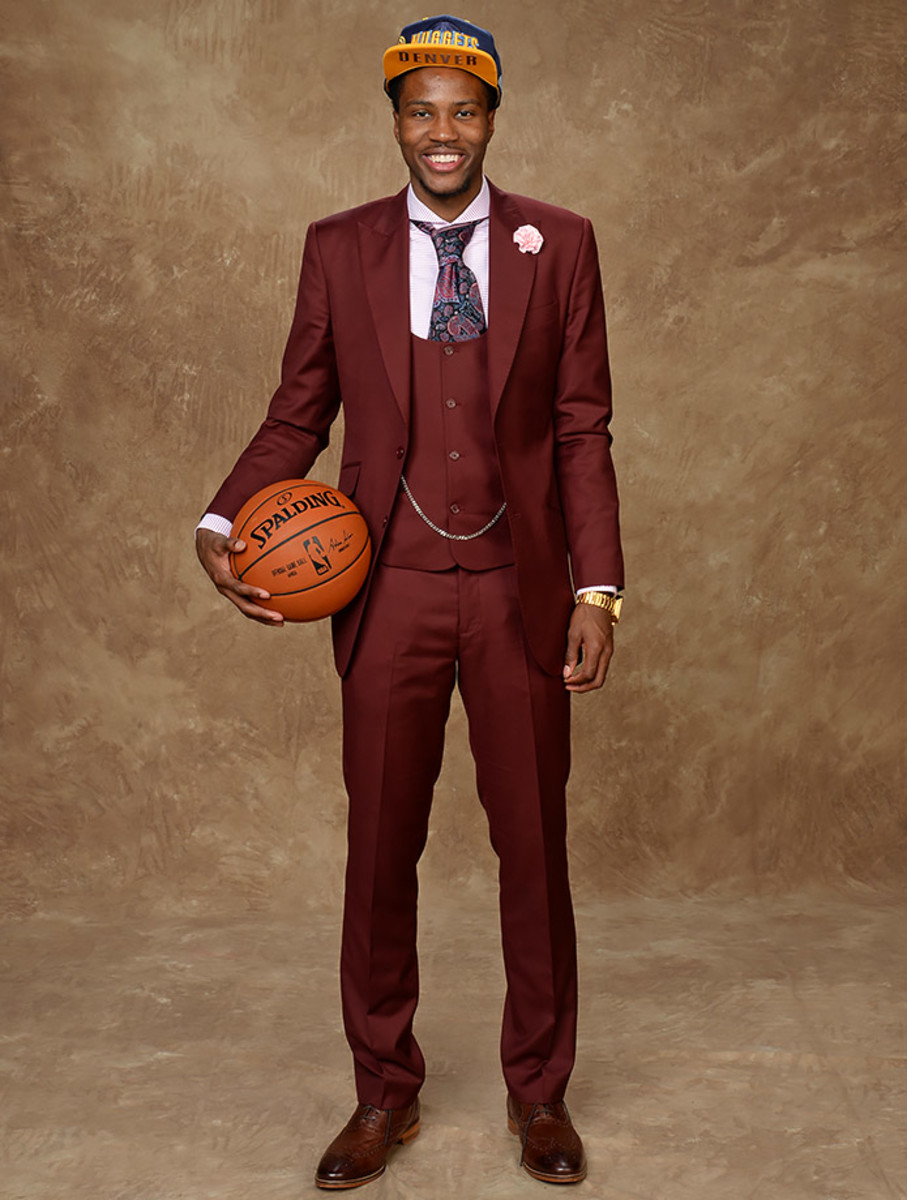
Malik Beasley
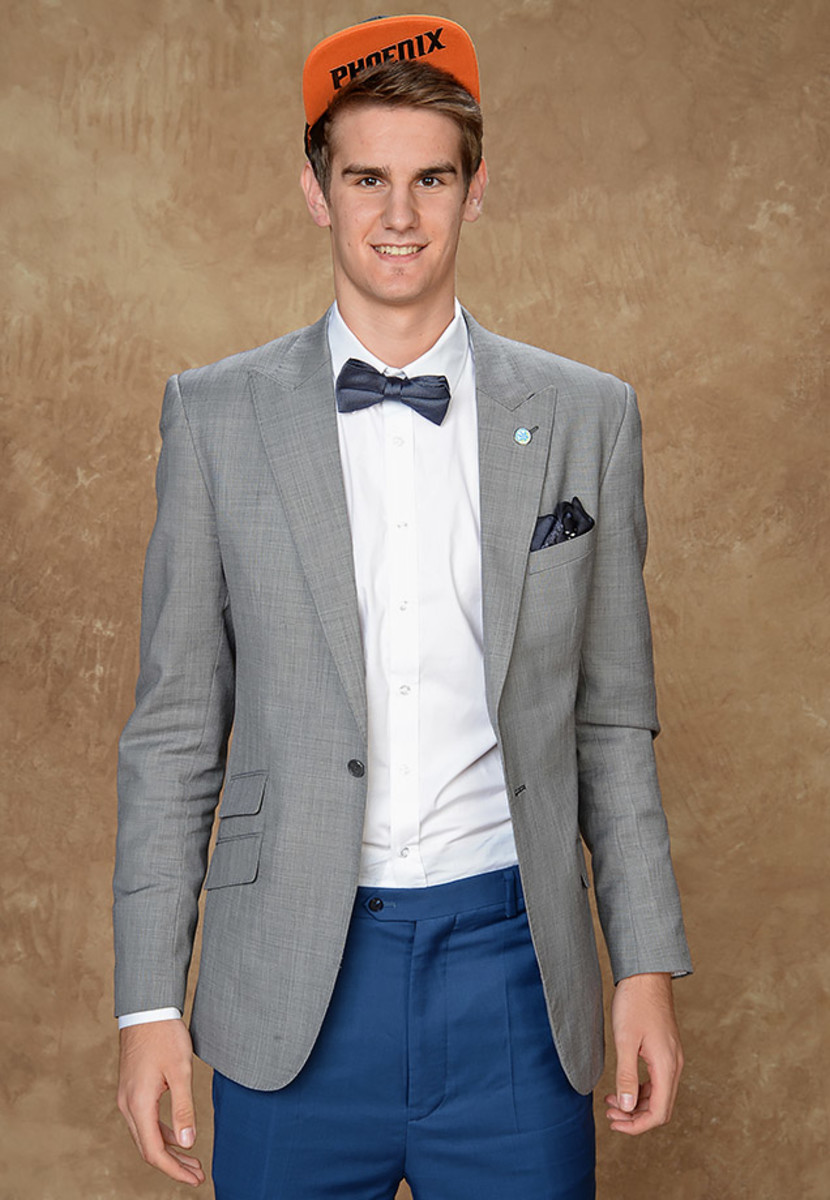
Dragan Bender
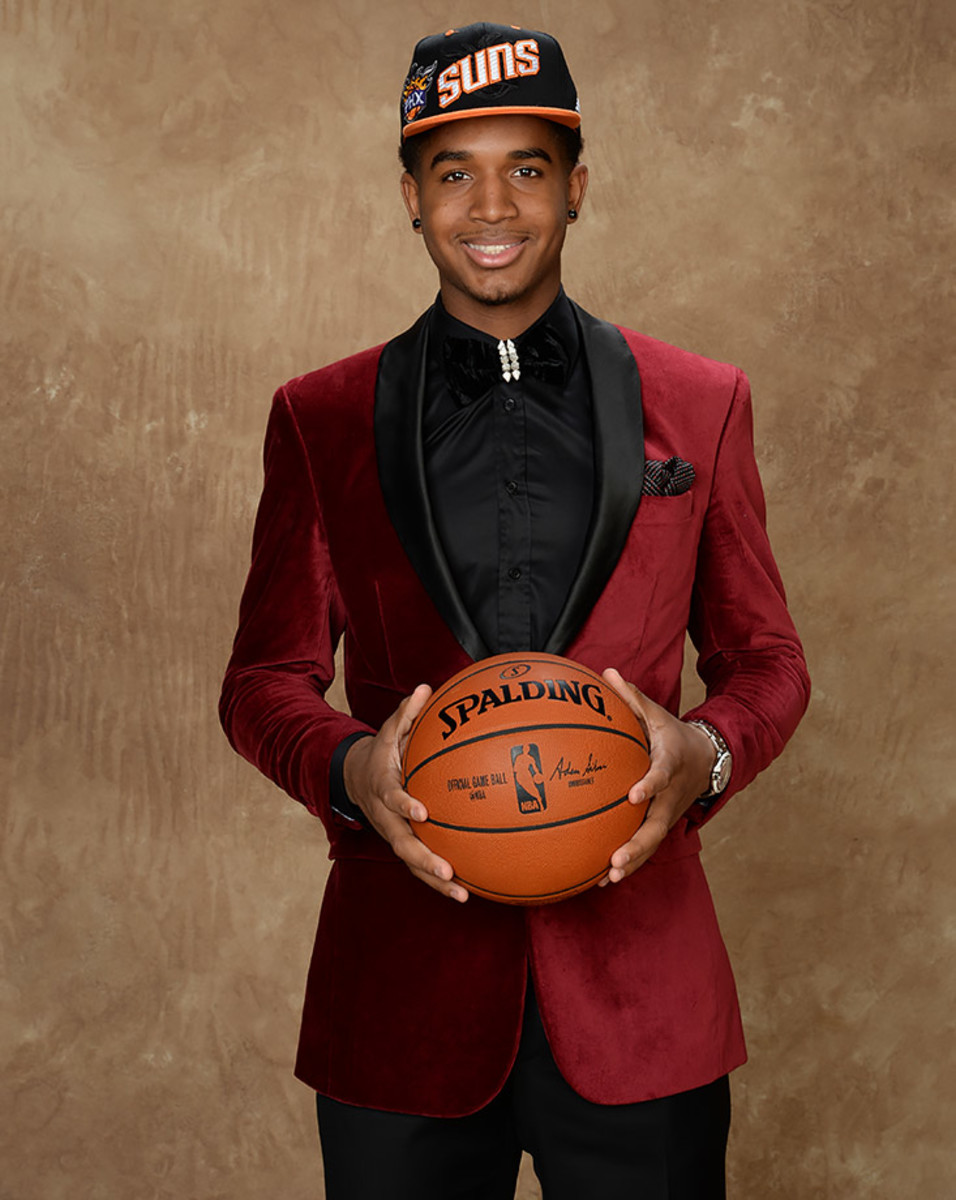
Marquese Chriss
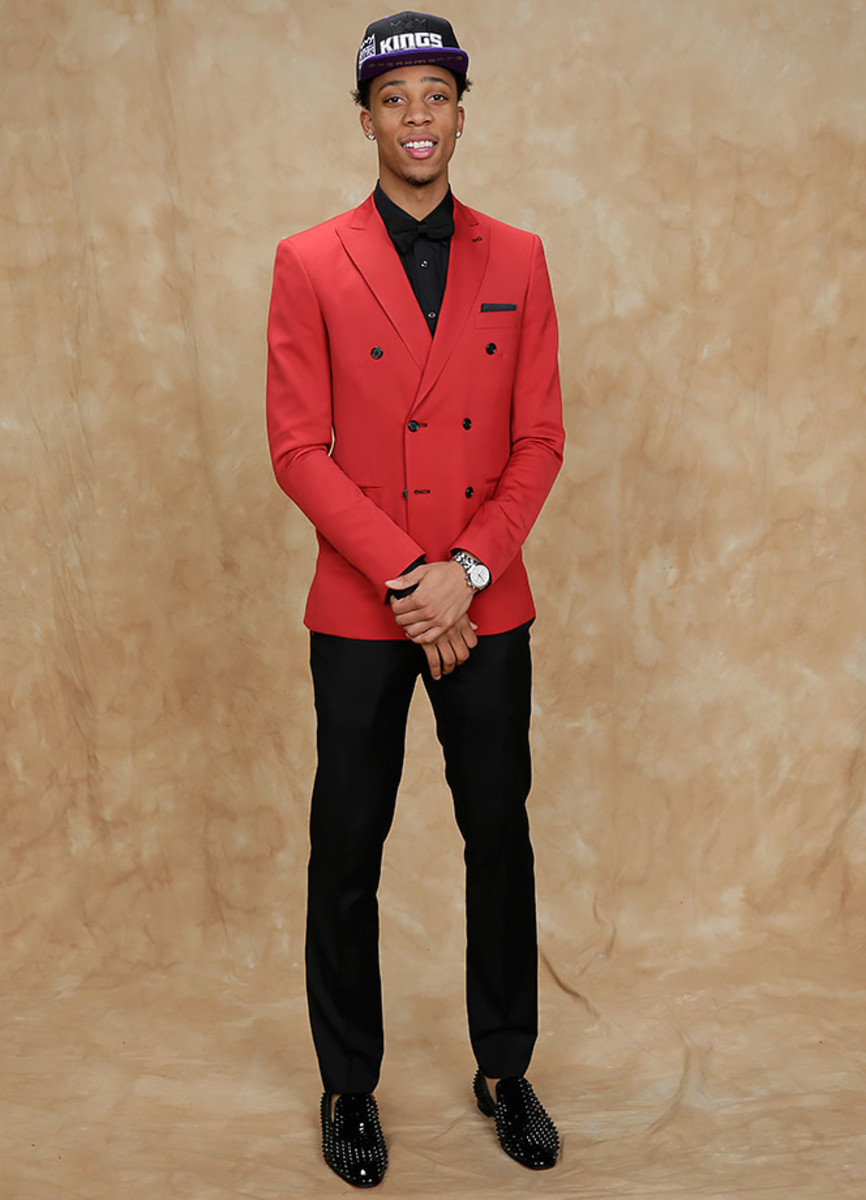
Malachi Richardson
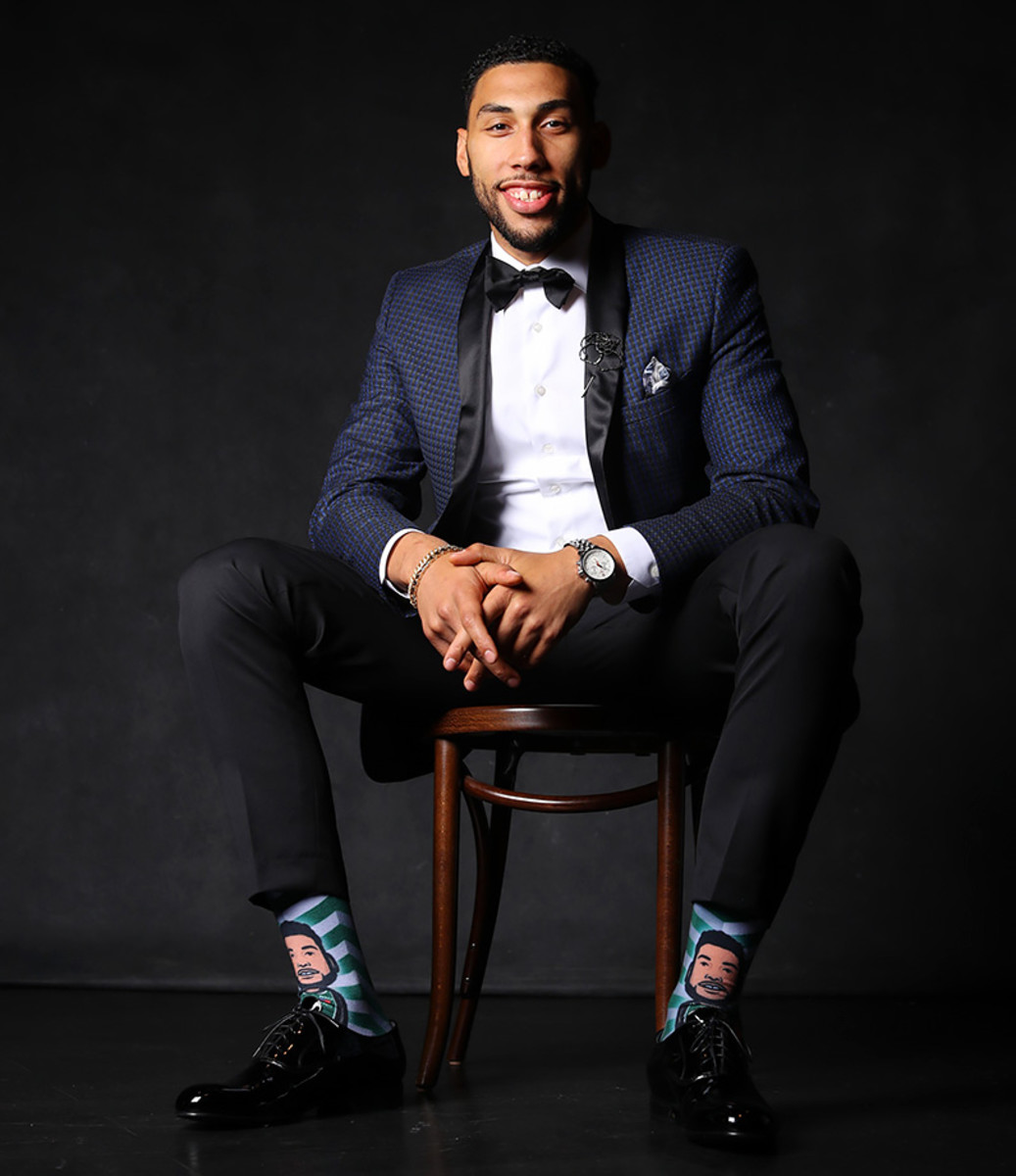
Denzel Valentine
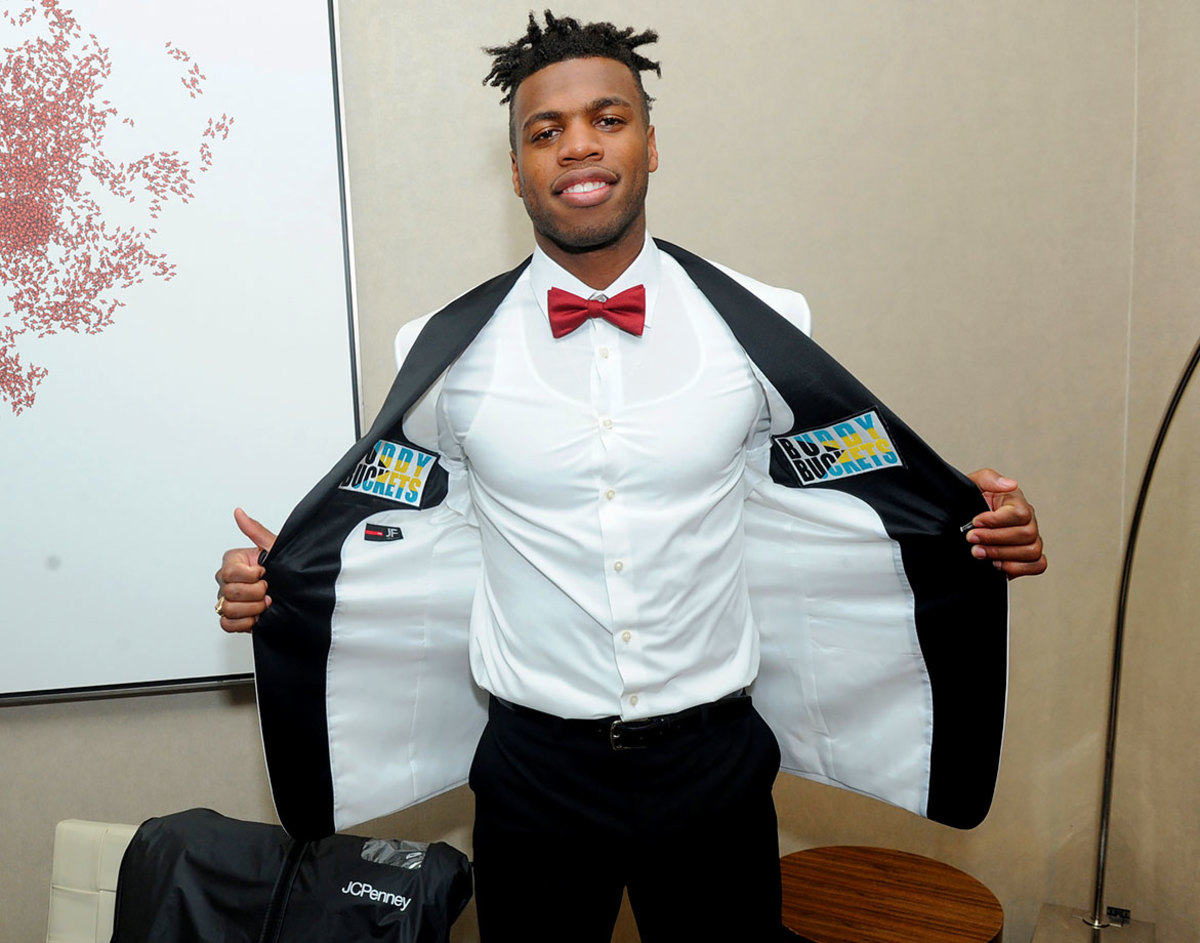
Buddy Hield
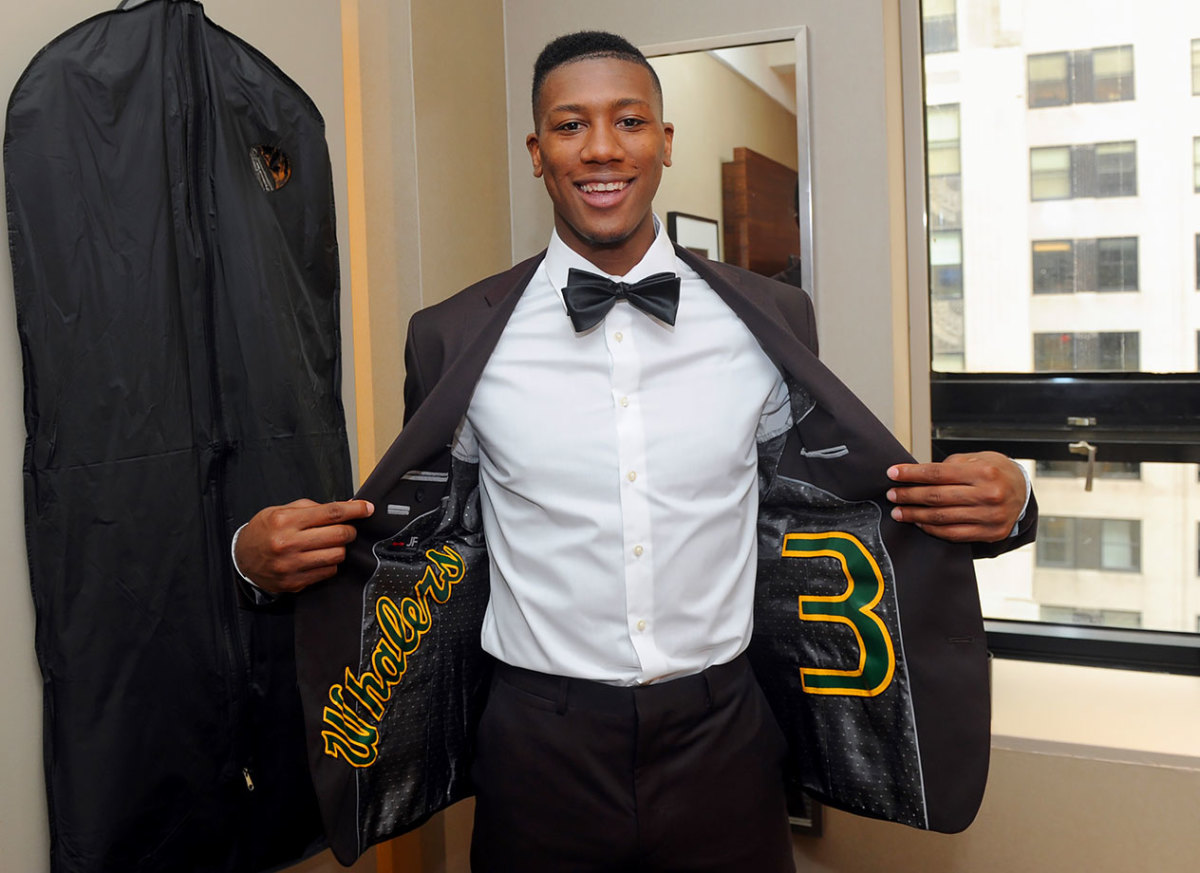
Kris Dunn
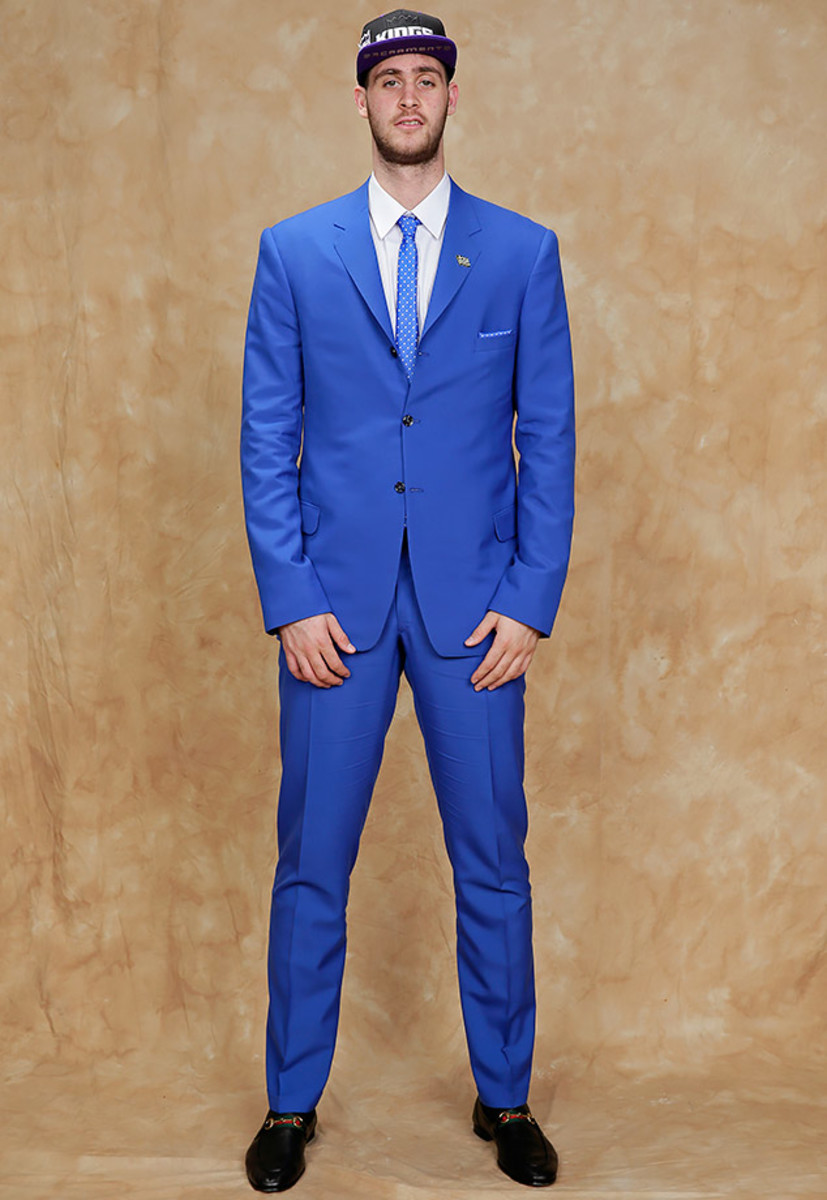
Georgios Papagiannis
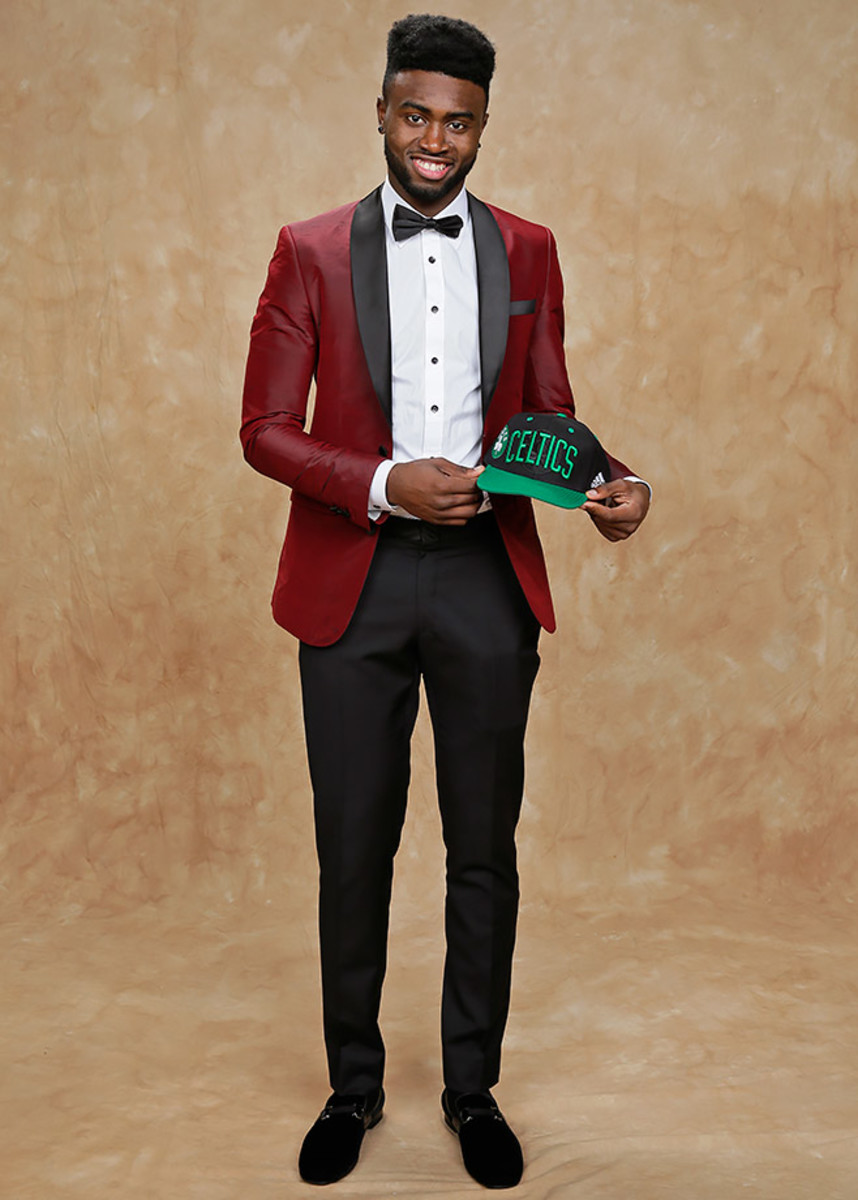
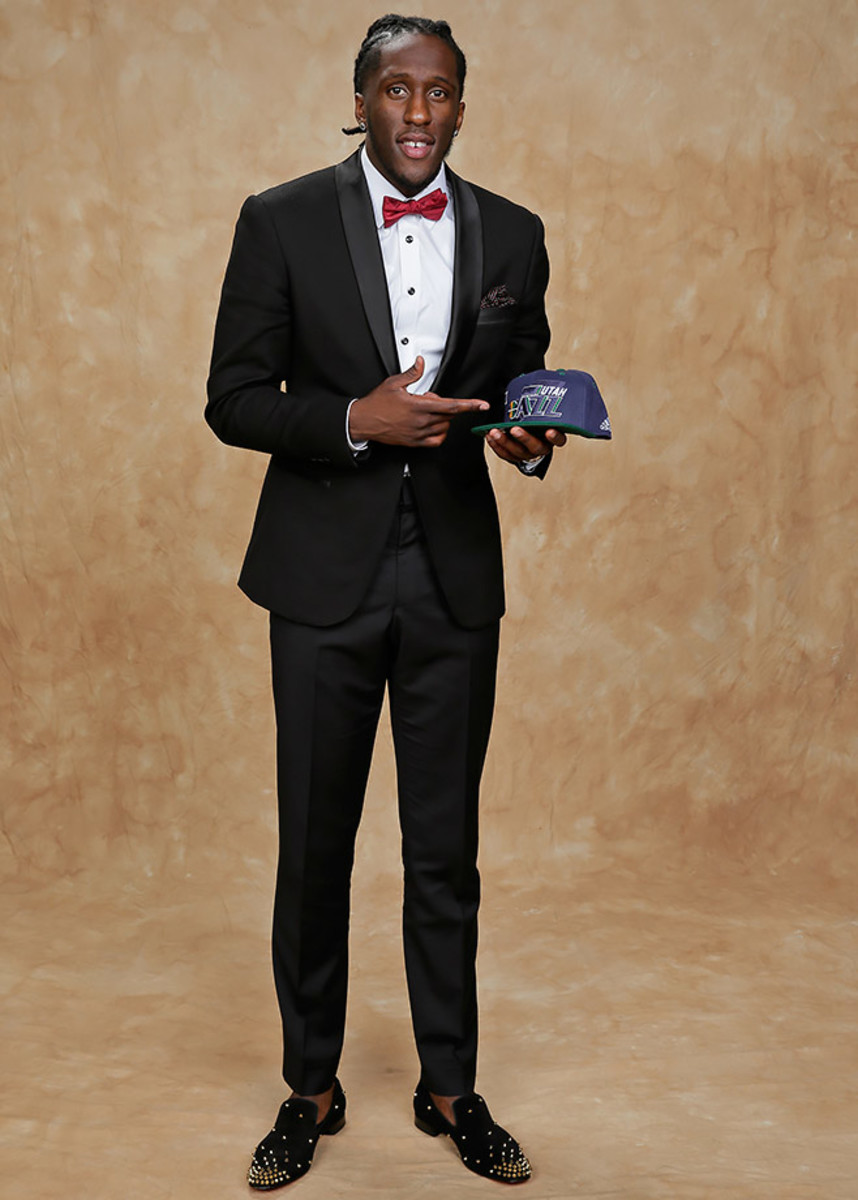
Taurean Prince
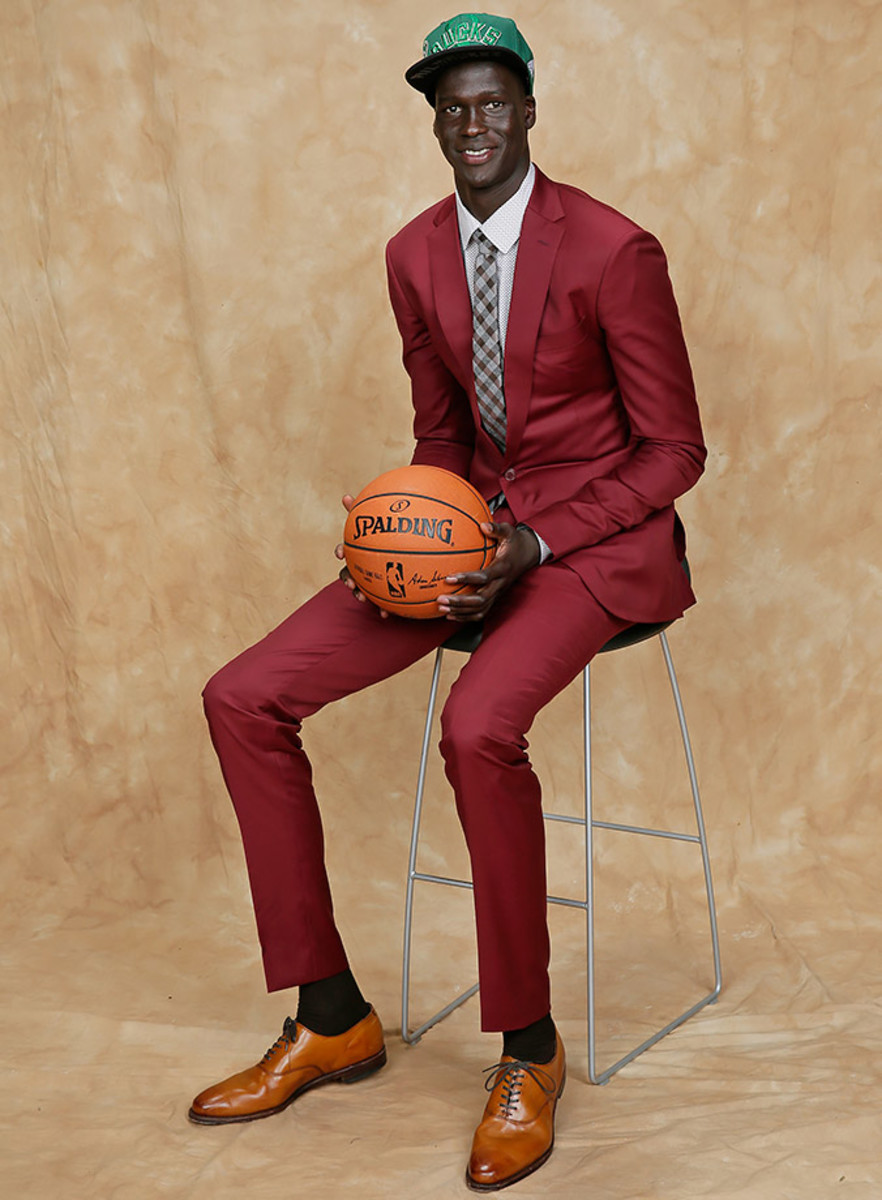
Thon Maker
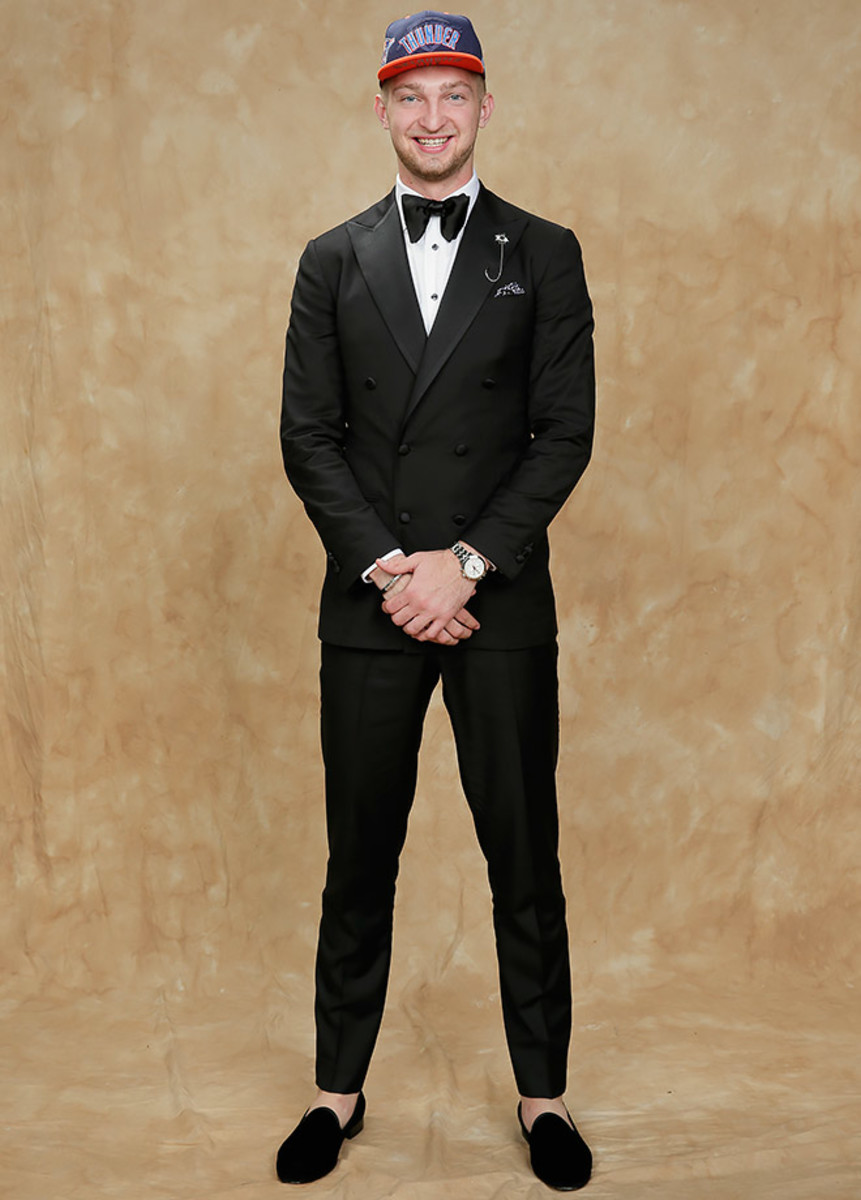
Domantas Sabonis
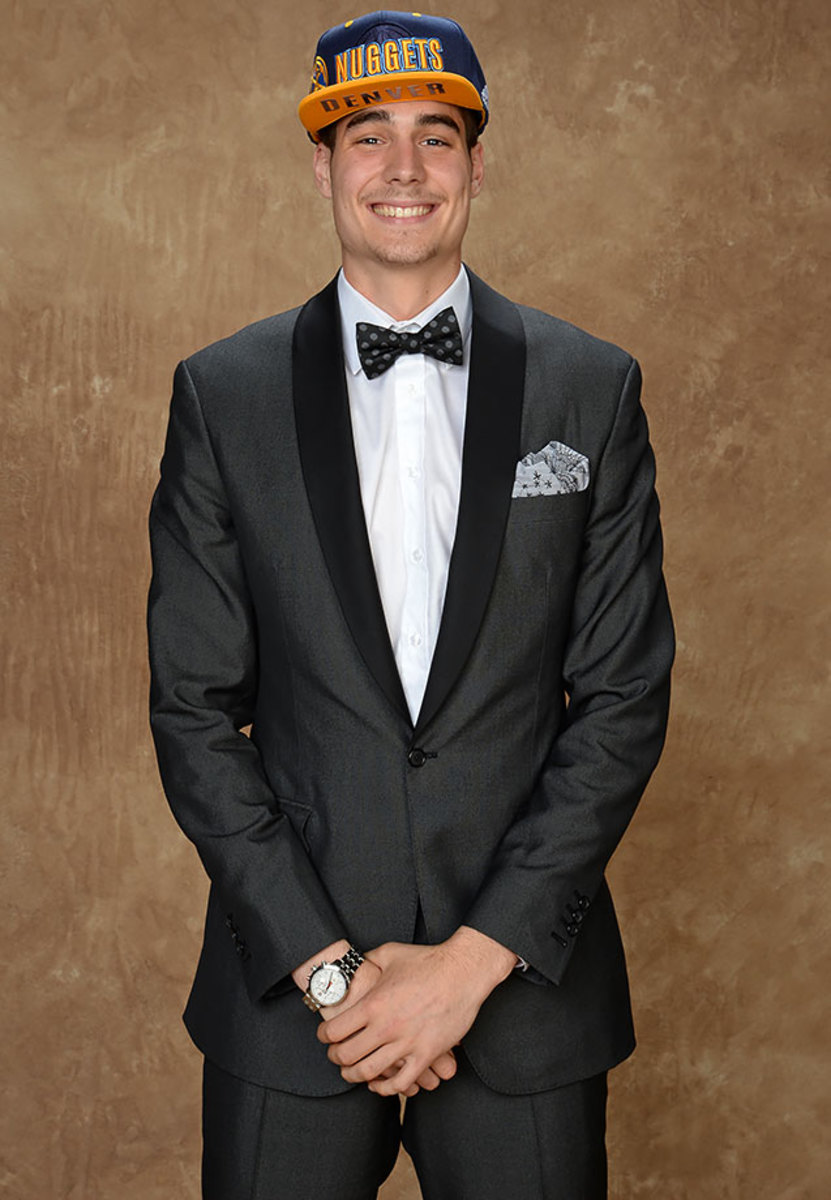
Juan Hernangomez
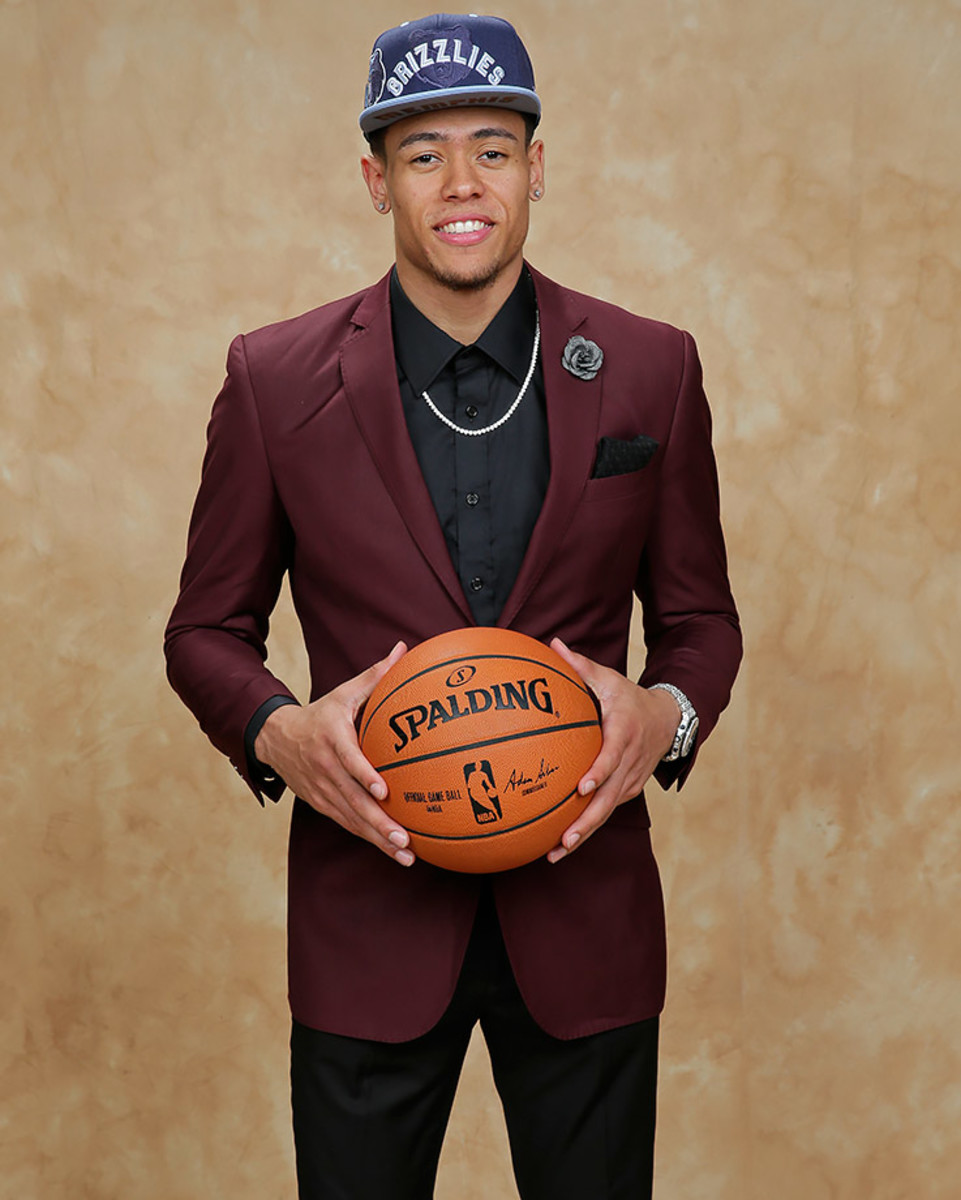
Wade Baldwin IV
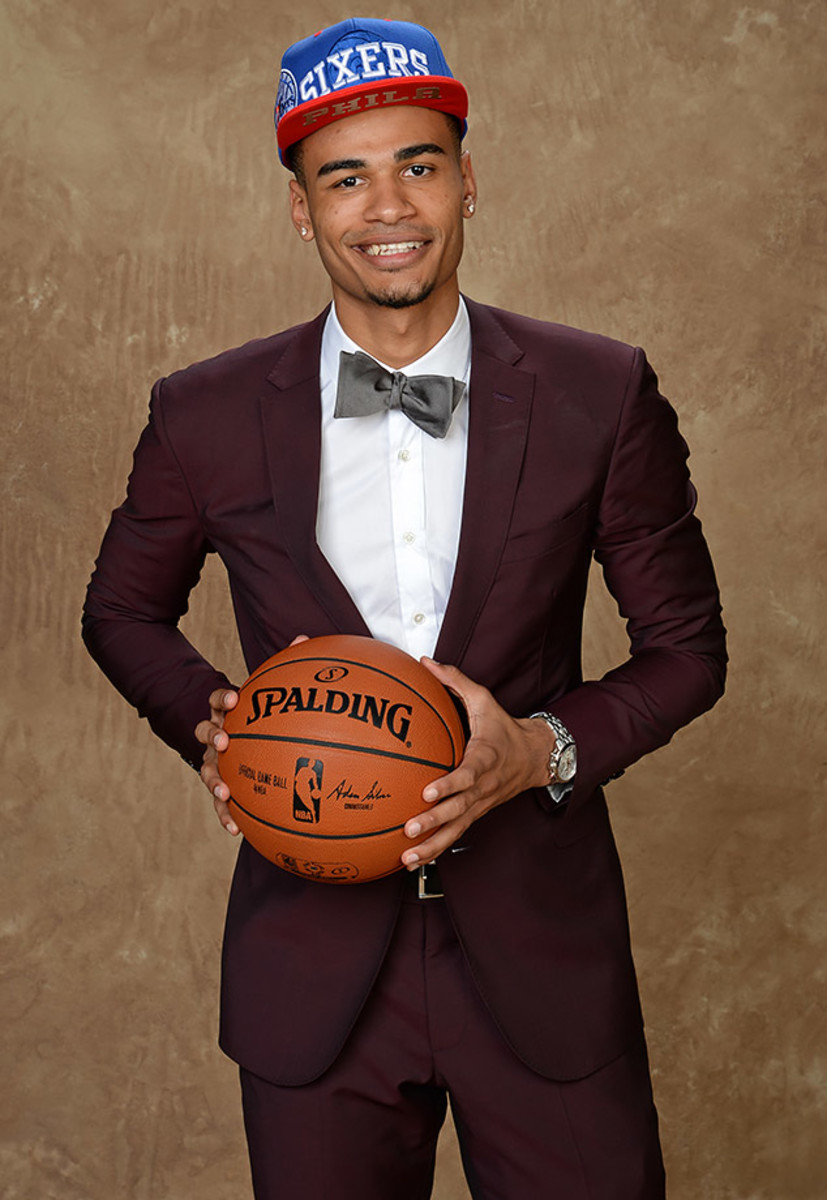
Timothe Luwawu
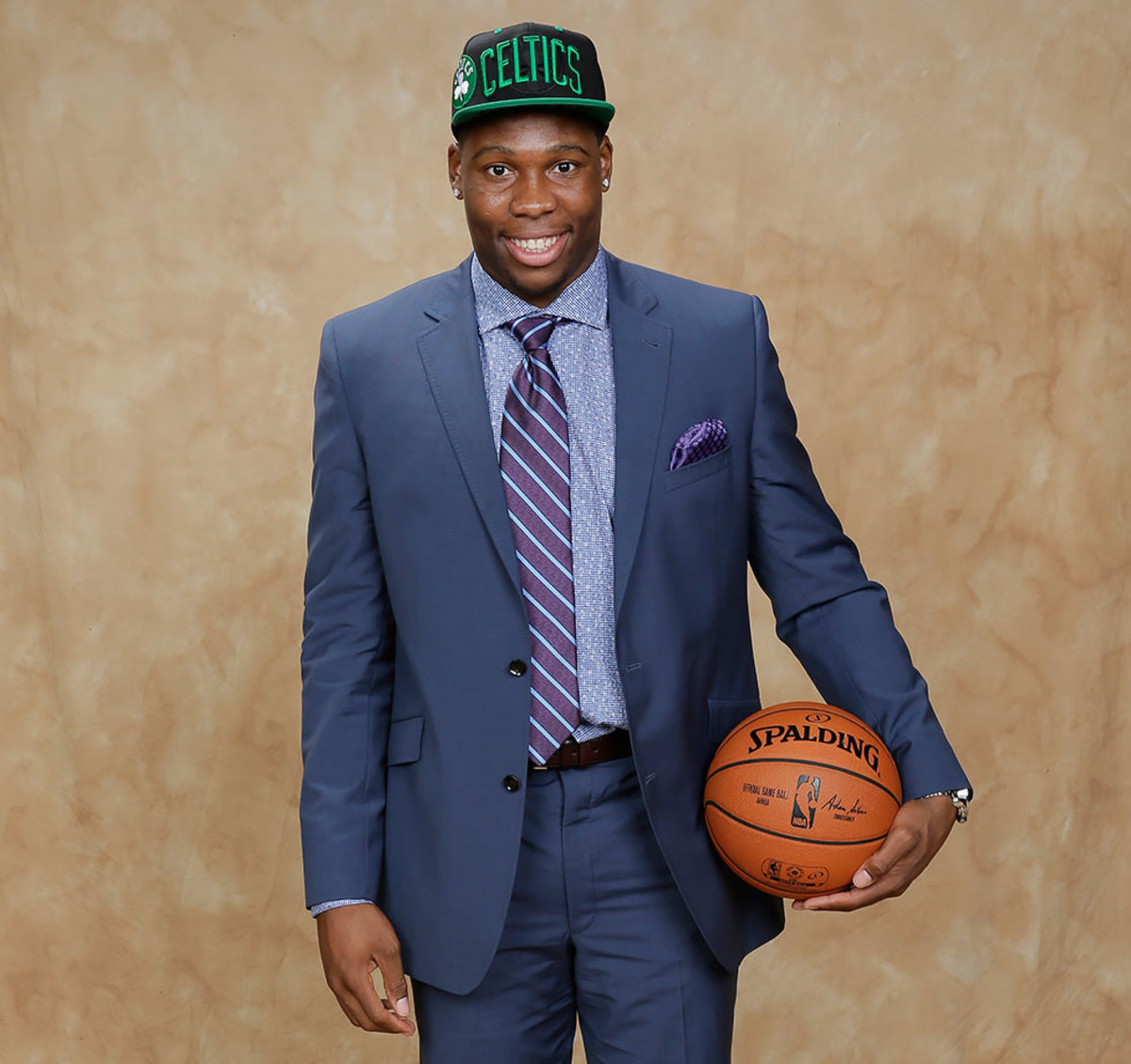
Guerschon Yabusele
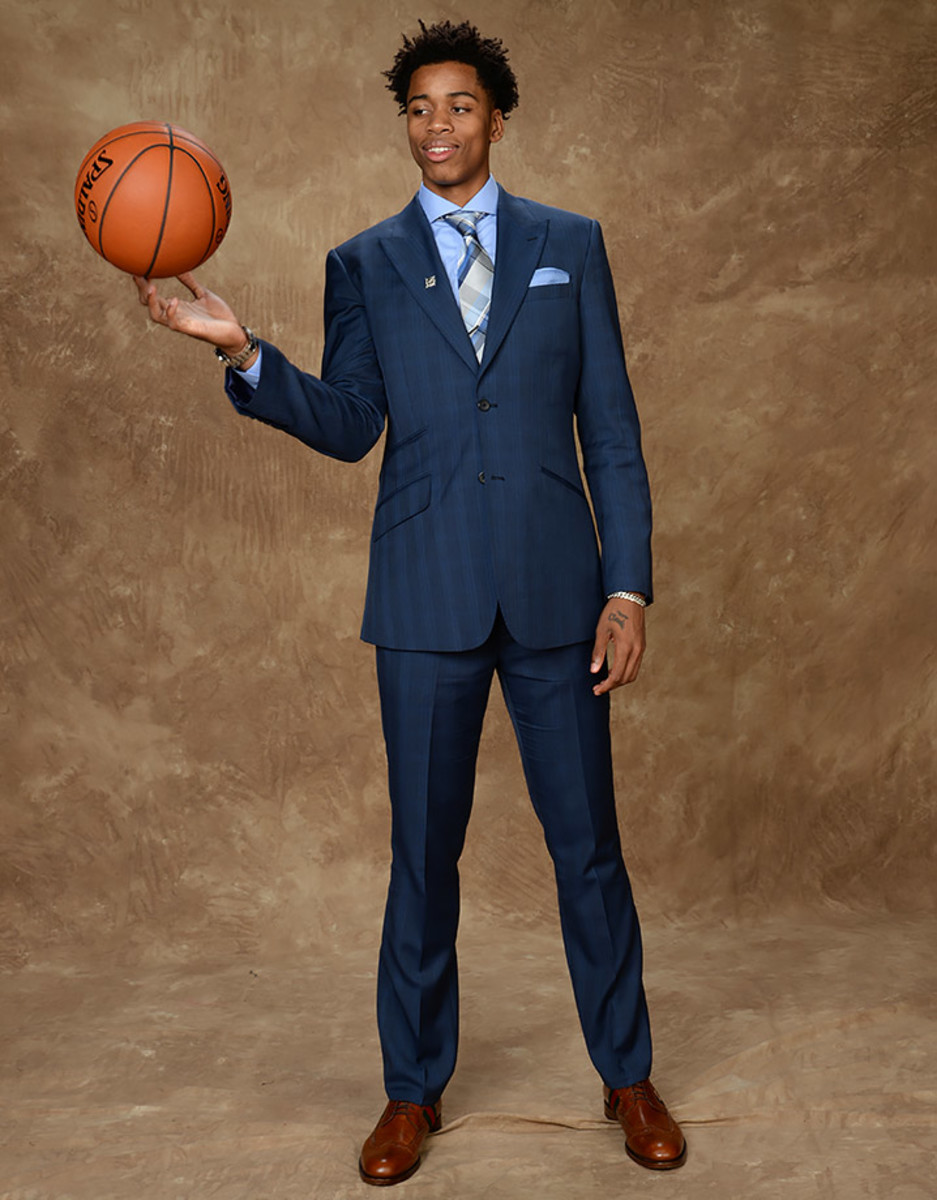
Deyonta Davis
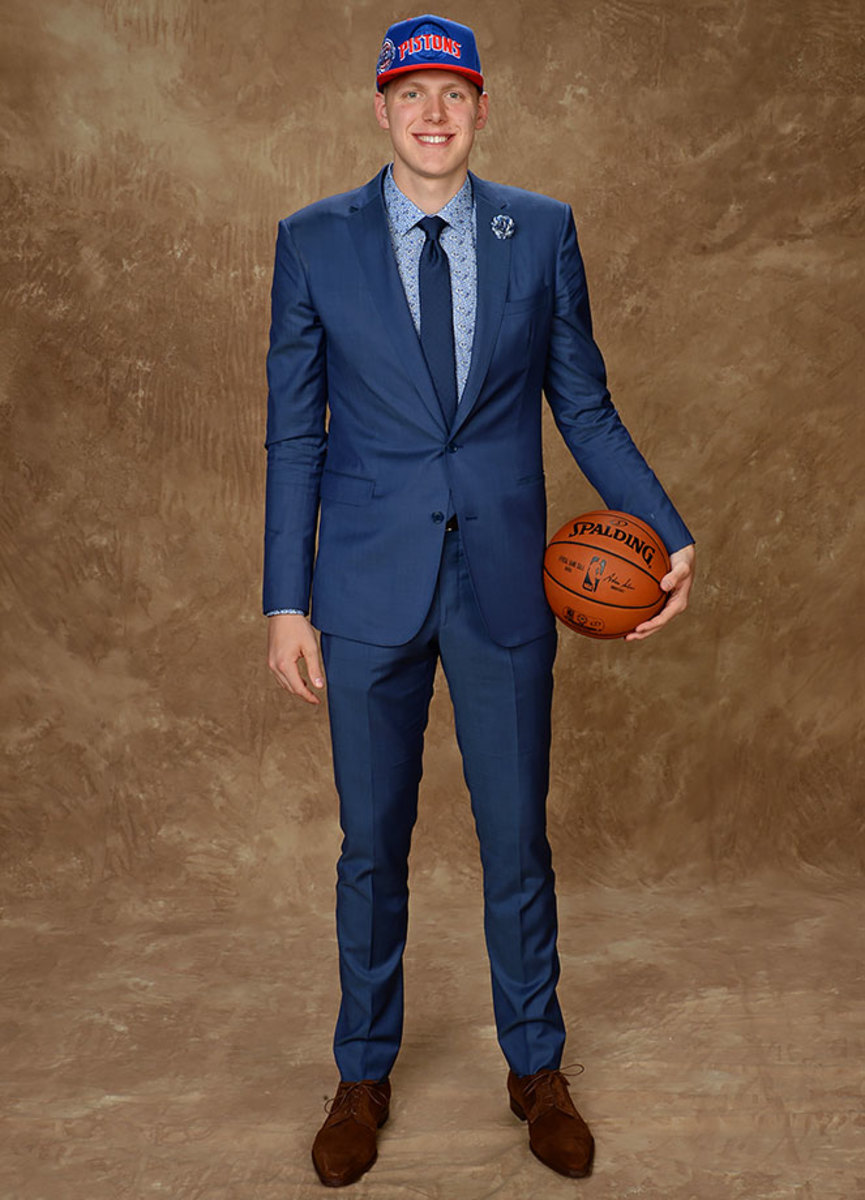
Henry Ellenson
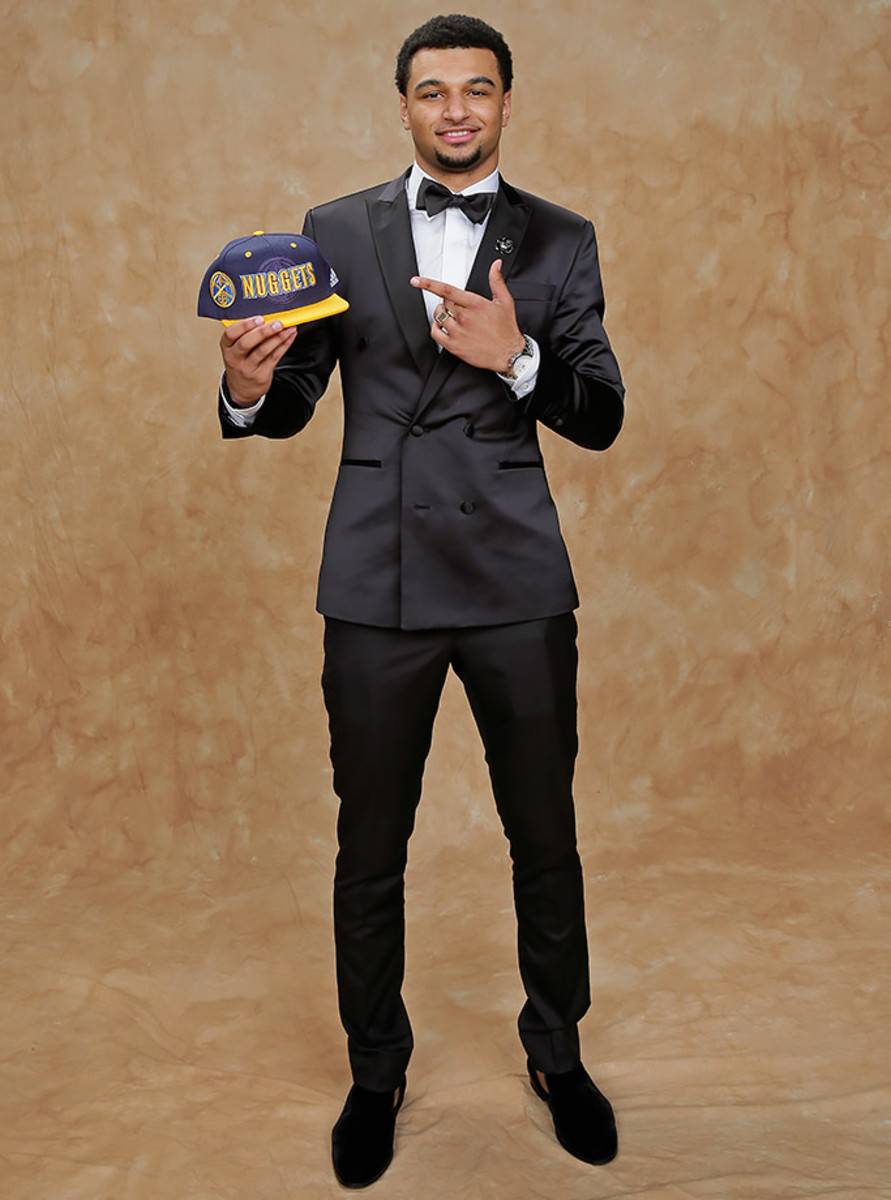
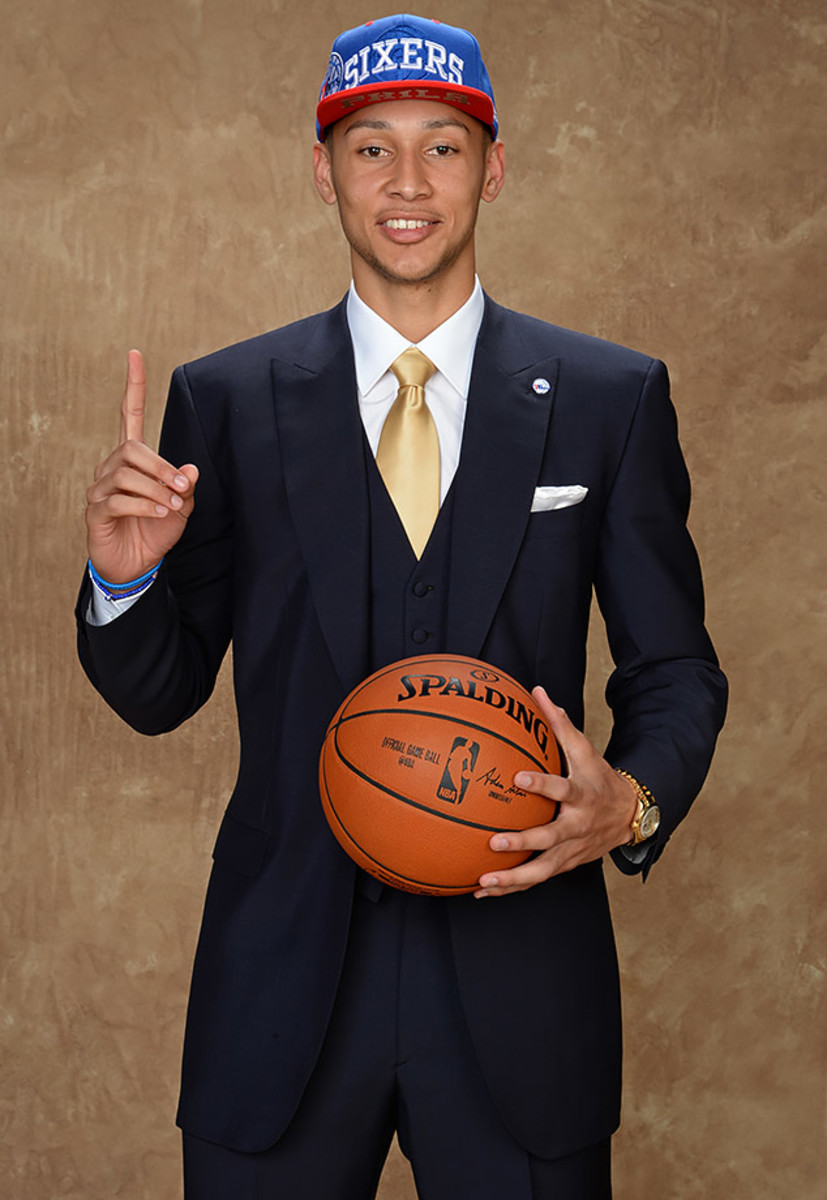
Ben Simmons
RM: I've read that you had to overhaul your shooting form a little bit. It sounded like, from the time you started college, things had to be moved around a little bit. Could you walk me through what that process was like?
BH: I just changed my form. Sticking with something that I feel comfortable with. It's just having fun. I'm always gonna shoot. Changing my form was never a big problem with trying to put the ball in the hole. It's just changing my form—nothing crazy.
RM: Did someone have to convince you to undertake something like that? Or was it something you sought out?
BH: Somebody saw it. Just trying to get the ball off quicker—find a different technique where I can get the ball off quicker and shoot it more professional-like.
RM: When you look forward, three or four years into your career, how do you think you'll be a different player than you are now?
BH: I feel I'll be a better facilitator, passing the ball. You see in summer league—I mean, there's not a lot of assists but I'm making plays for my teammates because I know the type of player that I am. Picking my poison, using my scoring threat, and making plays for my teammates. That's gonna be a big key for me. It's gonna be fun.
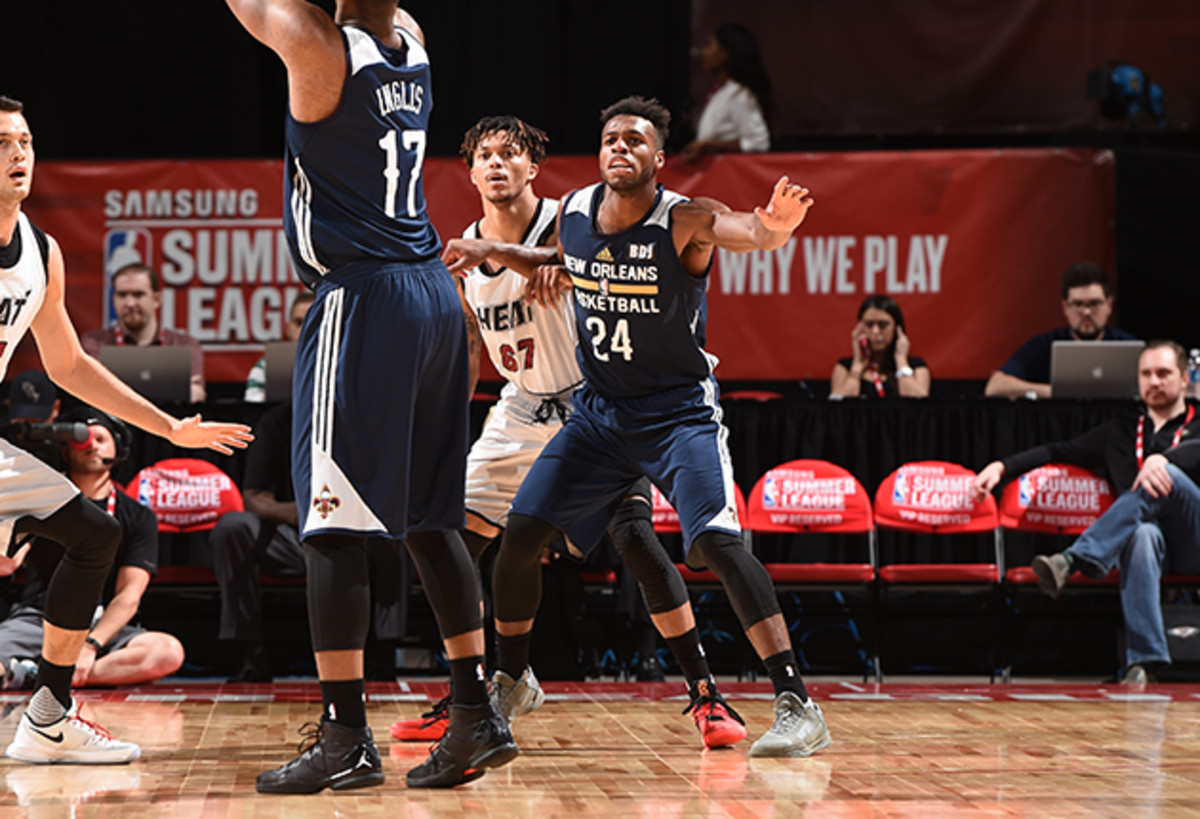
RM: How much stock do you really put into your play out here? It's not quite a normal NBA situation; you scrap together a group of guys who've never played together. How much stock do you put into how you're playing, those ebbs and flows?
BH: I hate it. I just hate playing bad. I hate not playing the way I'm comfortable playing at. It just leaves a bad taste in your mouth. You're playing at a place you're not used to. And it's frustrating. I haven't played like this in like a year or so. Playing like this makes you mad, but it makes it more motivated because you know you're still not the best that you want to be.
If I'd have come out here and life had been easier out here for me, I might've been okay with it. I'm glad I did not play the best I've played because now I can go back and work on stuff I need to work on and say, 'Buddy, you need to fix this and fix that and you need to do better at this.' [Anthony Davis] is gonna open the floor for everybody, but I still need to find ways to put the ball in the hole. It's a fun challenge, though. As a competitor, you like challenges like that because that makes you who you is.
RM: What has that feedback been like? Whether it's from you gauging your own game or from the coaching staff, what are the things you're looking forward to getting back in the gym to work on to improve?
BH: Everything. I'm not shooting the ball how I want to so I'm gonna be putting up tons of shots. Just doing me. Just doing what I do best that gets me there.
Best NBA First-Round Picks by Draft Slot
No. 1: Magic Johnson, Los Angeles Lakers (1979)
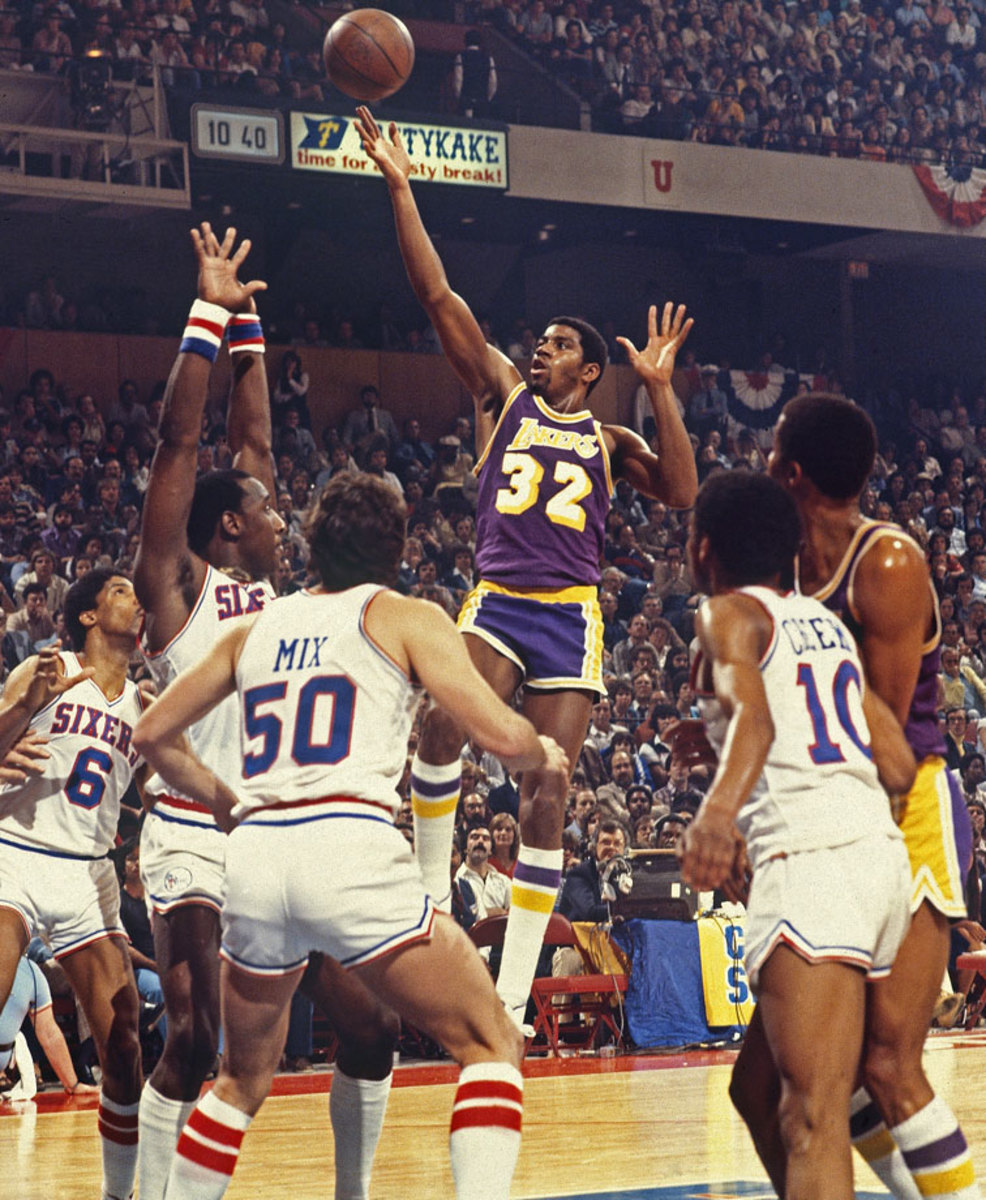
A difficult choice among other top picks — including Kareem Abdul-Jabbar, Shaquille O'Neal and Tim Duncan (Oscar Robertson was a territorial pick and LeBron James had a lot more time to improve his body of work and win titles) — but Magic not only won five championships but also rescued the NBA through his West-East rivalry with Larry Bird. He recast the league as an entertainment company led by likable stars. Would the NBA ever have become so popular without him?
No. 2: Bill Russell, St. Louis Hawks (1956)
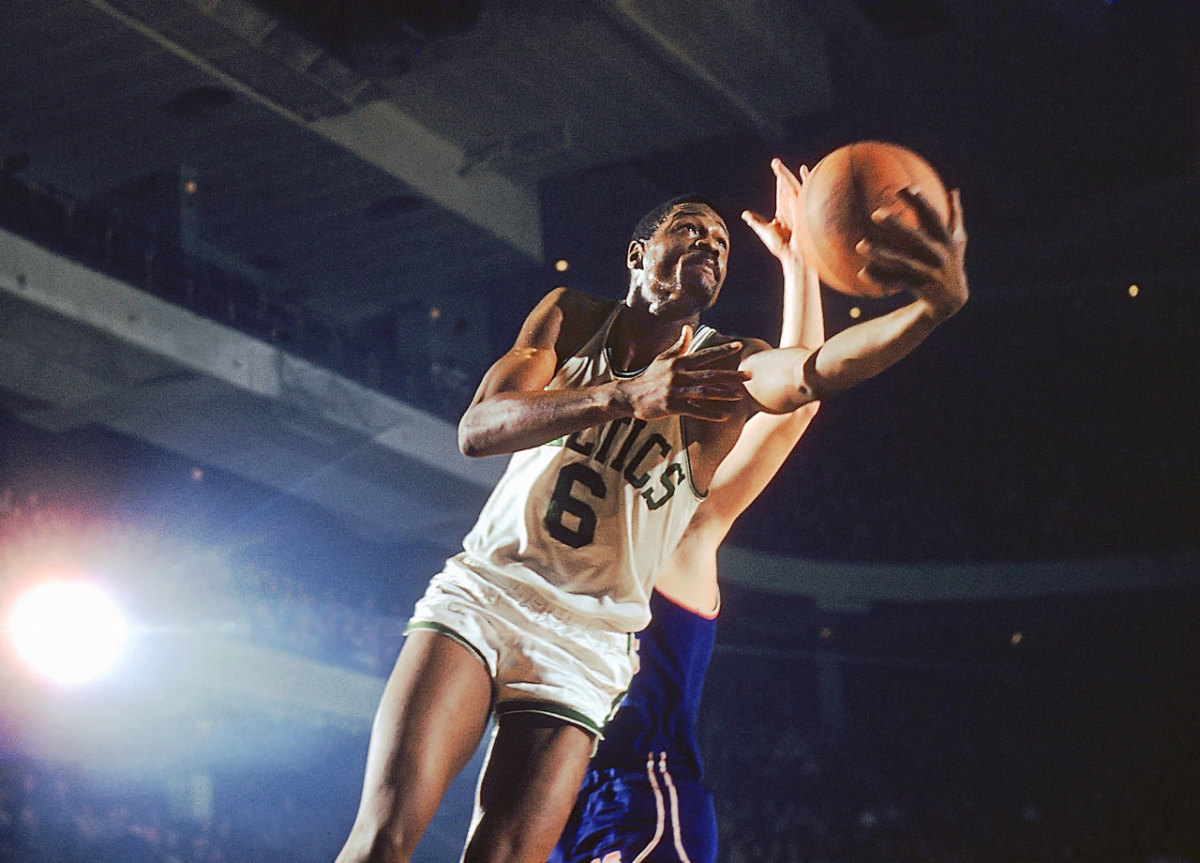
In my book, Russell is the most important draft pick in league history because he instituted the team-first leadership skills that defined success in the NBA and were emulated by Michael Jordan and many other stars thereafter. Because of this pick — acquired by Red Auerbach in a bold trade that sent All-Stars Ed Macauley and Cliff Hagan to the St. Louis Hawks — the Celtics became the most dominant team in sports history, winning 11 of 13 championships around Russell's unprecedented defensive dominance.
No. 3: Michael Jordan, Chicago Bulls (1984)
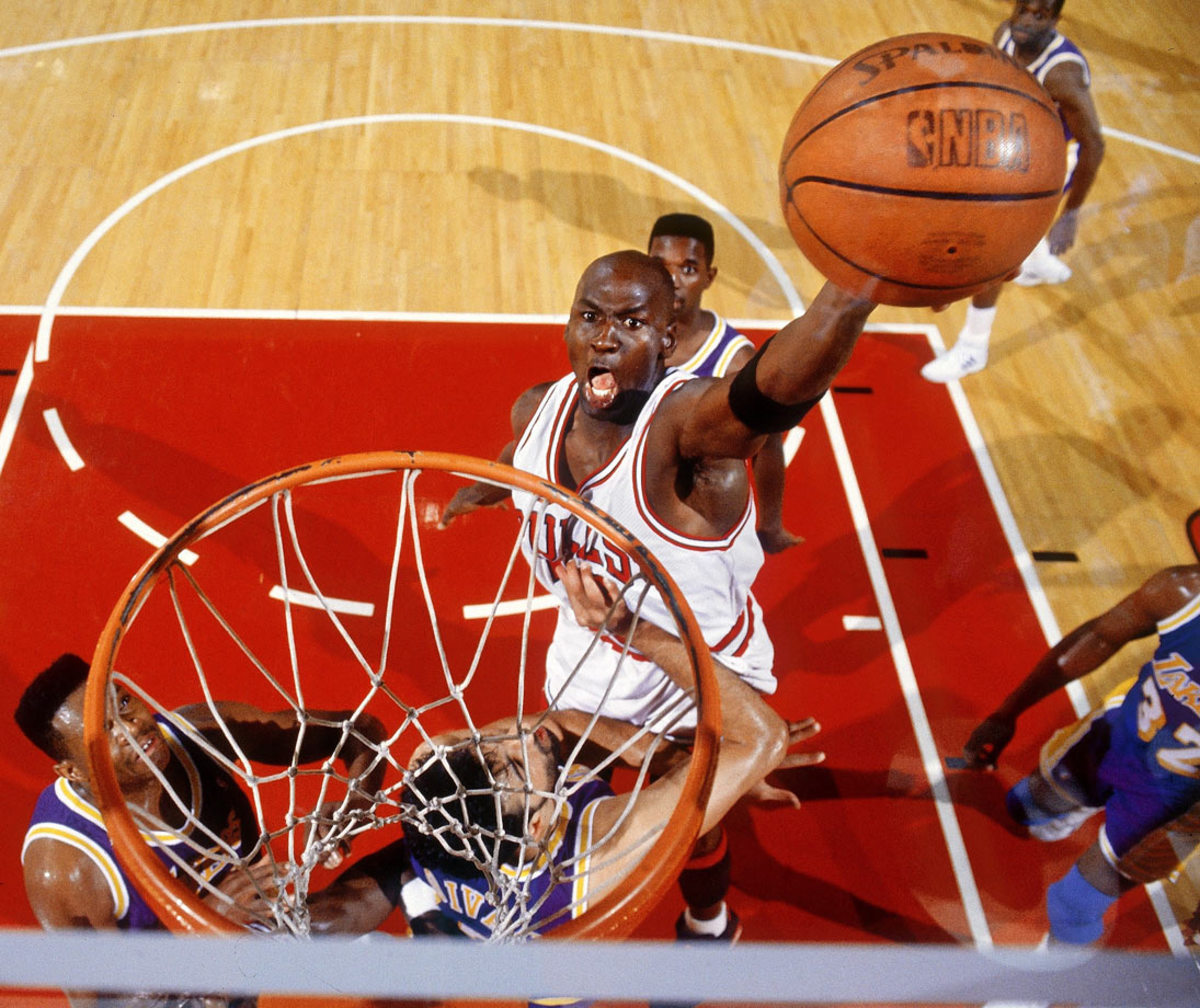
It continues to defy reason that the Trail Blazers passed on Jordan to take center Sam Bowie with the No. 2 pick. (The Rockets used the No. 1 pick on Hakeem Olajuwon, an acceptable decision as he would deliver two championships to Houston.) Jordan became the greatest player of the modern era, and the only basketball player ever to be acknowledged as the most popular athlete in the world.
No. 4: Dave Cowens, Boston Celtics (1970)
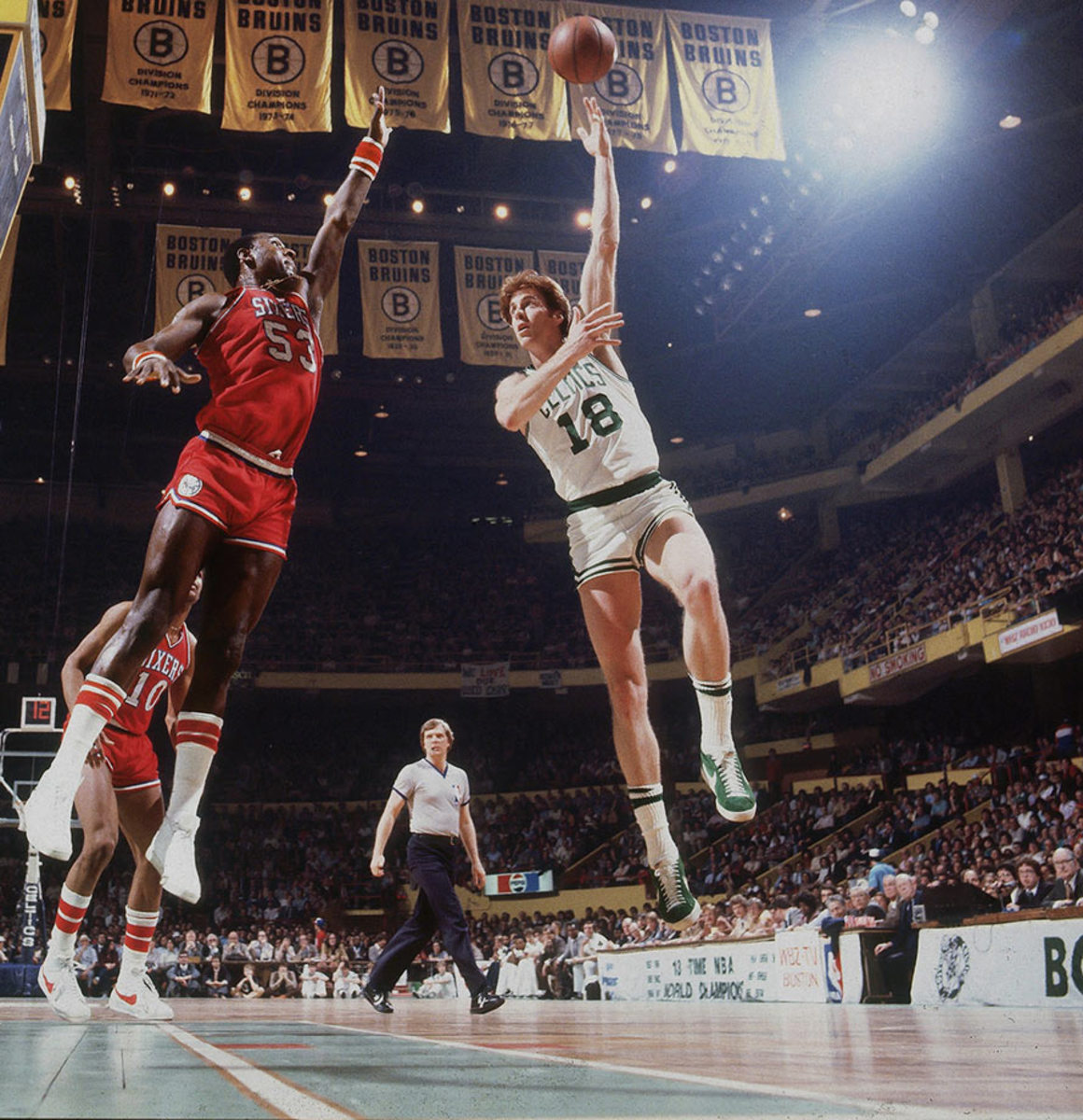
The 6-foot-9 Hall of Famer was an undersized center who won all of the meaningful awards (co-Rookie of the Year, MVP, All-NBA and All-Defensive first team) as well as leading Boston to two championships as Russell's unlikely successor.
No. 5: Kevin Garnett, Minnesota Timberwolves (1995)
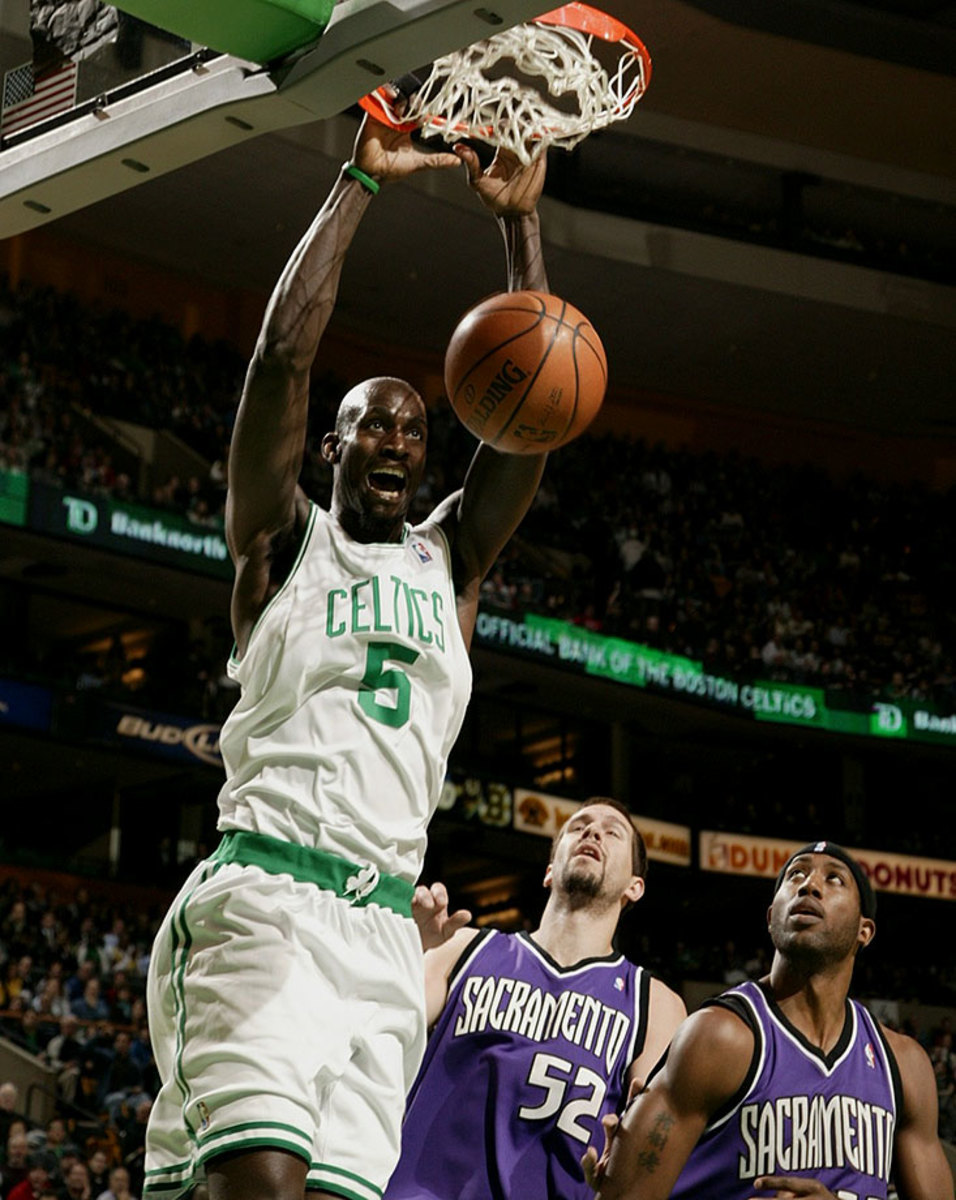
Minnesota took an enormous risk in picking Garnett so high — players without college experience being unproven products in '95 — and he turned into one of the most influential big men of his era. Scottie Pippen, Dwyane Wade, Walt Frazier, Charles Barkley and Ray Allen were also No. 5 picks, but Garnett's dominance in virtually all phases of the game sets the standard here.
No. 6: Larry Bird, Boston Celtics (1978)
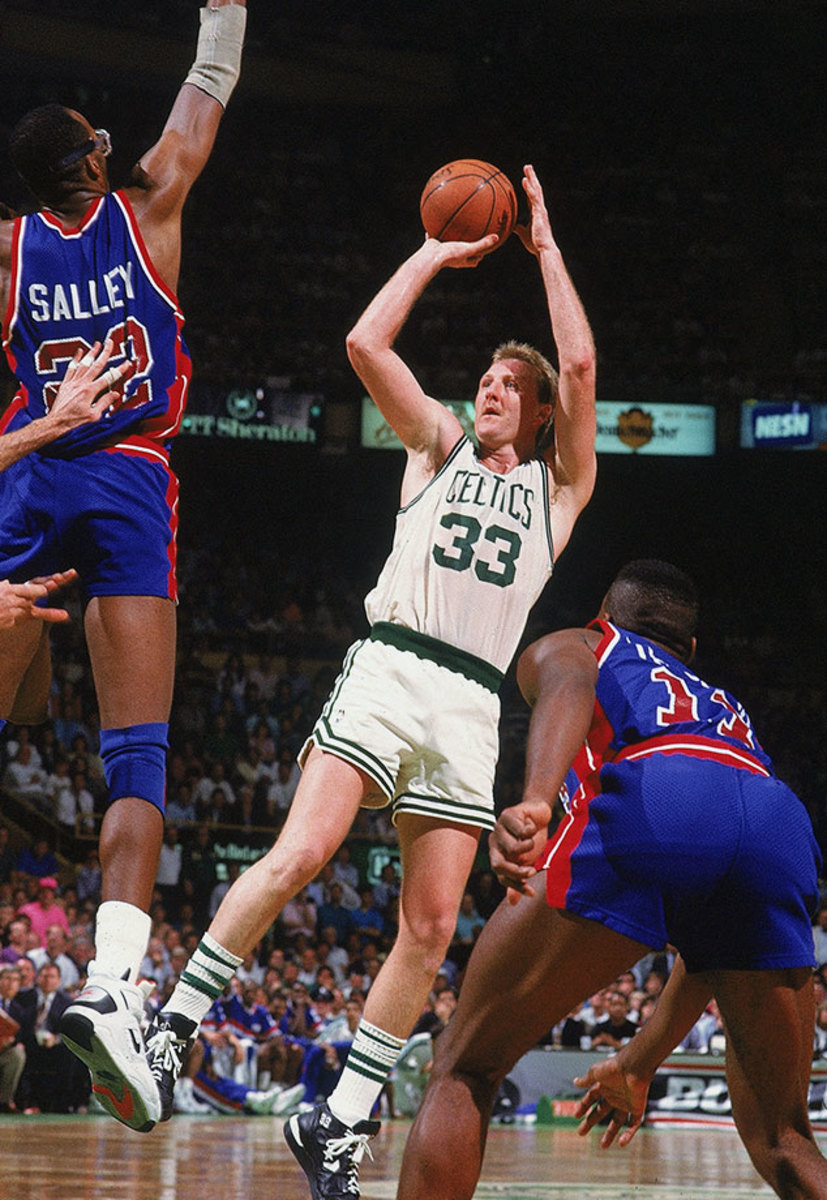
So valuable was Bird that Auerbach drafted him before his final season at Indiana State, exploiting a loophole that has since been closed. When Bird showed up in Boston one year later, he proved that he was worth the wait.
No. 7: John Havlicek, Boston Celtics (1962)
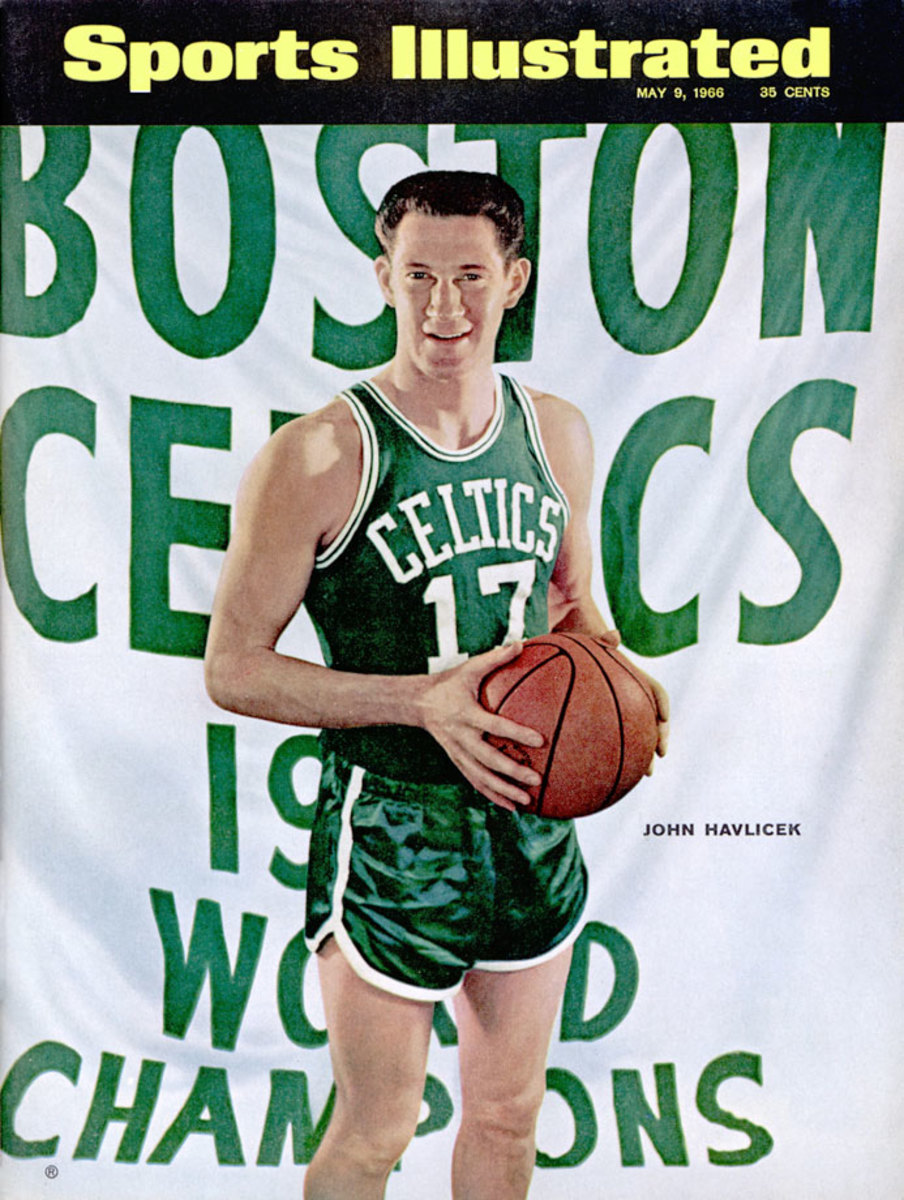
Manu Ginobili is his era's version of Hondo — a versatile, high-energy swingman so selfless that he doesn't care whether he starts or comes off the bench. Havlicek retired in 1978 with eight championships and he remains the leading scorer in Celtics history.
No. 8: Sam Jones, Boston Celtics (1957)
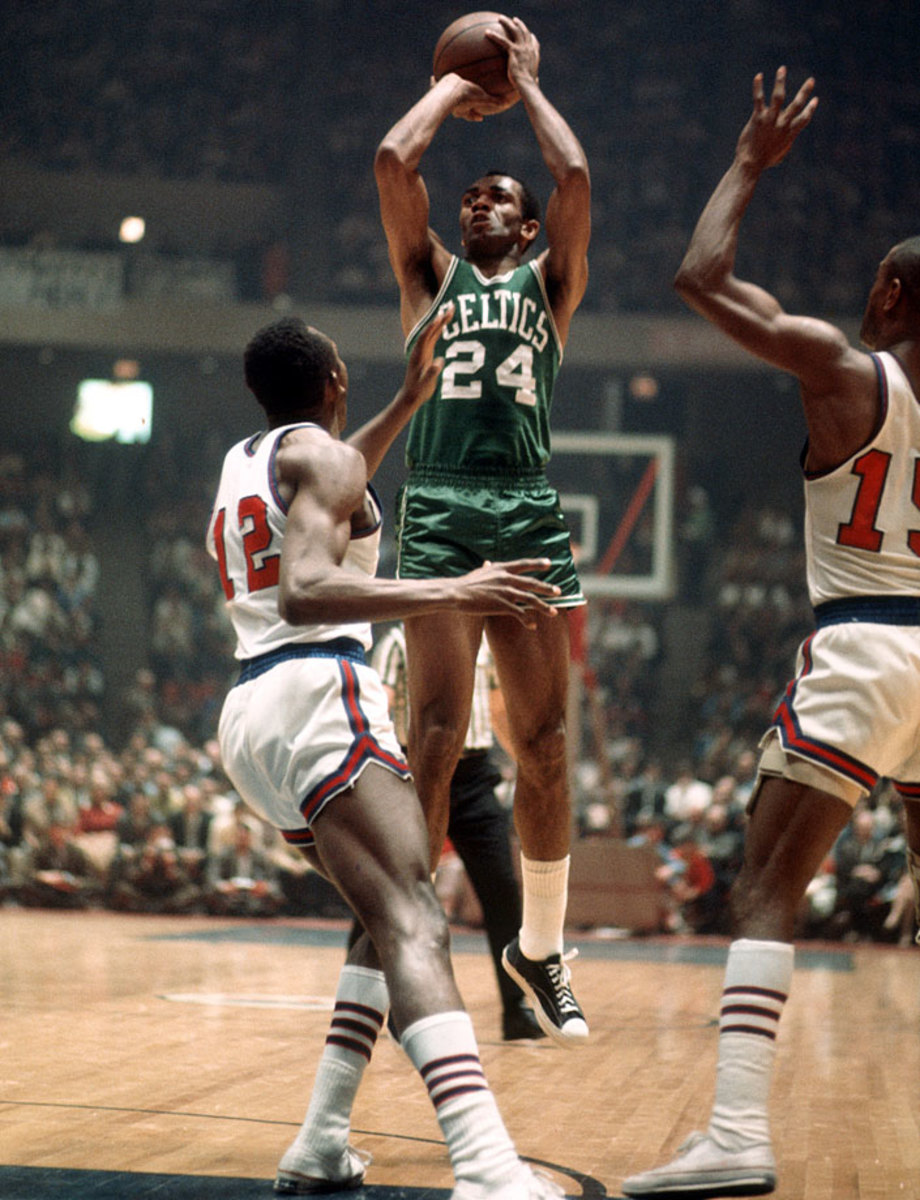
Originally chosen by the Minneapolis Lakers a year earlier, the 6-4 Jones reentered the draft after military service and became the Celtics' version of Mr. Clutch, hitting huge playoff shots in a 12-year career that included 10 NBA championships. 19 years after Jones' selection, the Warriors turned the No. 8 pick into Robert Parish, who also helped deliver championships to Boston.
No. 9: Dirk Nowitzki, Milwaukee Bucks (1998)
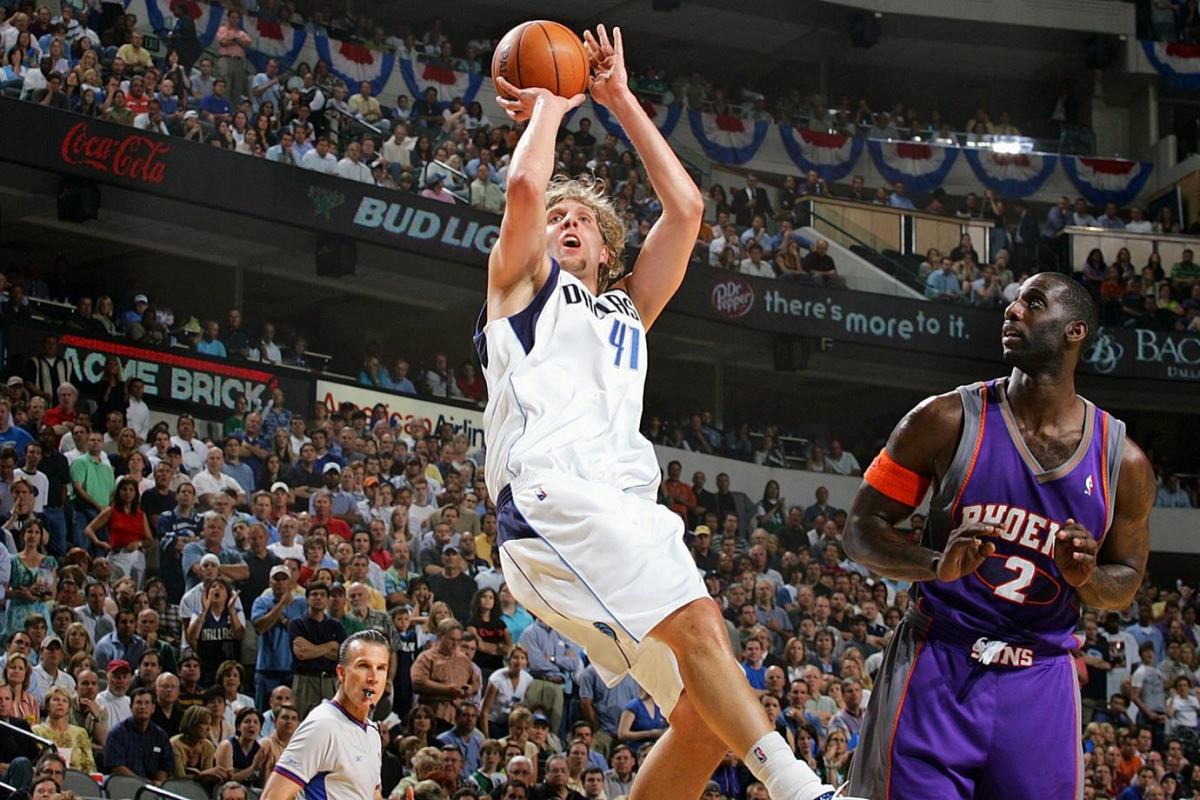
In a prearranged draft-night trade that turned into one of the most lopsided deals in history, the Mavericks sent No. 6 pick Robert Traylor to the Bucks for Nowitzki and rookie Pat Garrity, whom Dallas dealt to Phoenix for Steve Nash. Nowitzki's three-point shooting as a 7-footer transformed the NBA's view of the power forward position. He led the Mavericks to the 2006 NBA Finals and was named league MVP a year later.
No. 10: Paul Pierce, Boston Celtics (1998)
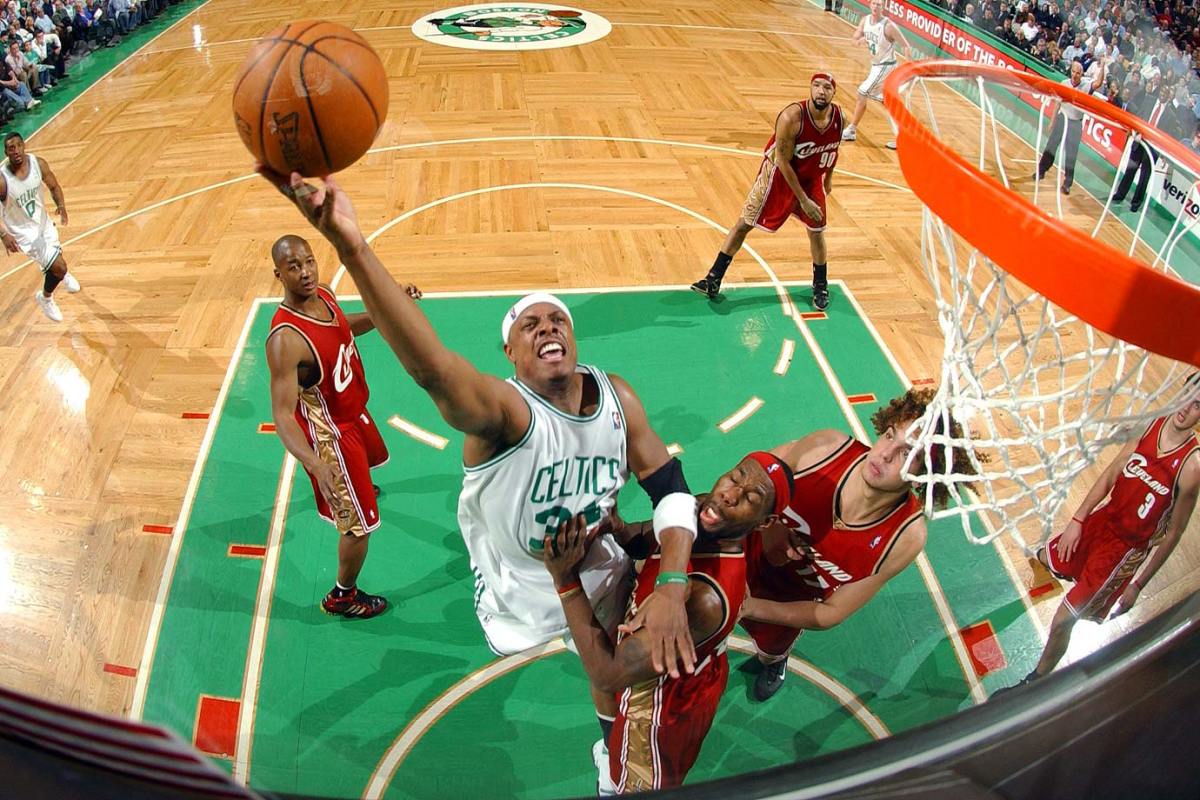
Viewed as a potential top-three pick, Pierce slid to No. 10. He was on the verge of requesting a trade when the Celtics acquired Kevin Garnett and Ray Allen to help Pierce win the 2008 championship. He is Boston's No. 2 all-time scorer, between Havlicek and Bird.
No. 11: Reggie Miller, Indiana Pacers (1987)
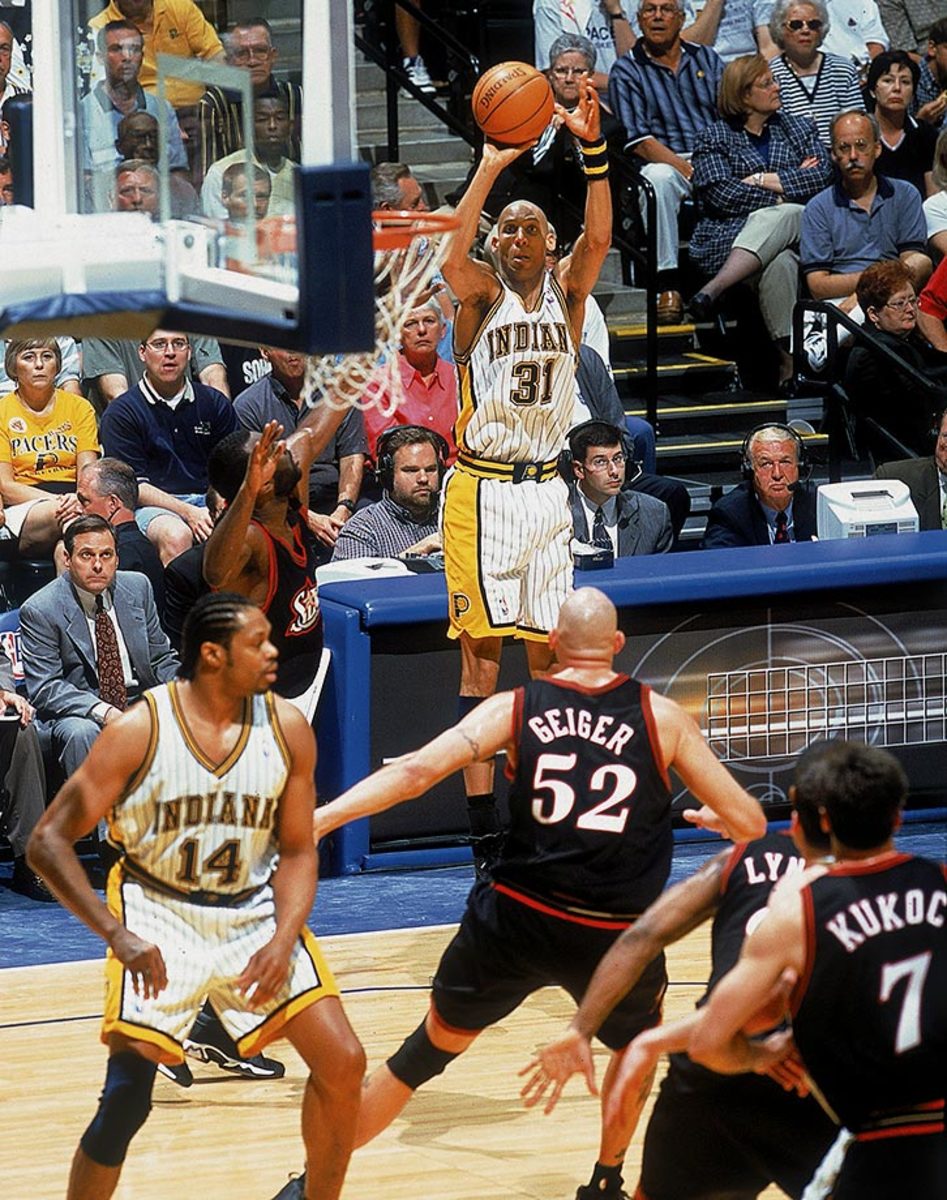
This has been a good slot in which to acquire shooting: Allan Houston, Robert Horry and Kiki Vandeweghe were all No. 11 picks, as was Jamaal Wilkes. But none made a bigger impact on the team that drafted him than Miller, a clutch scorer who matured to set a standard of leadership for the Pacers.
No. 12: Julius Erving, Milwaukee Bucks (1972)
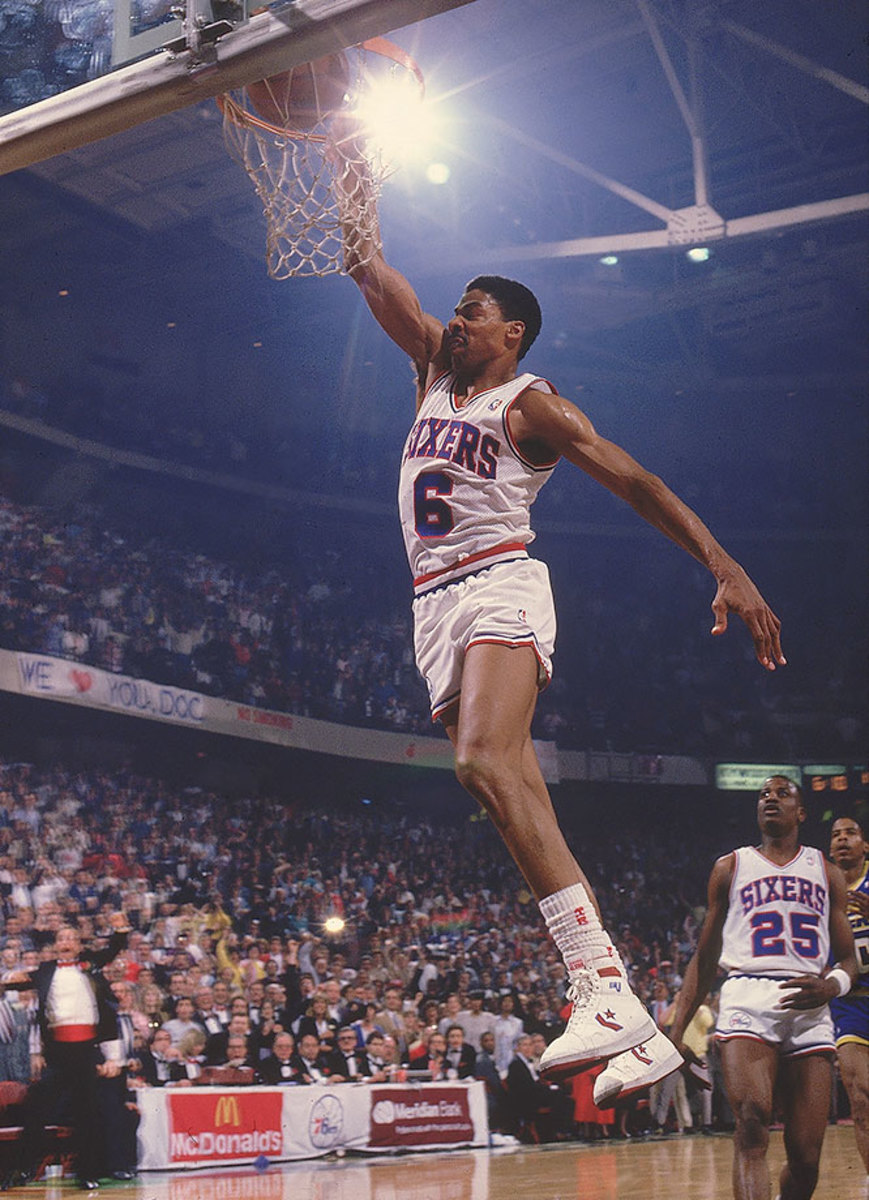
Had Erving signed with Milwaukee, he would have been teammates with Abdul-Jabbar and Robertson; instead, he moved to the ABA, where he won three MVPs and two championships in five seasons before a merger with the NBA shifted him to the 76ers at age 26. More than a creator of highlights, Erving won an MVP award and a championship in 11 years with Philadelphia. But his majestic finishing around the basket set a standard for athletic elegance that remains unmatched.
No. 13: Kobe Bryant, Charlotte Hornets (1996)
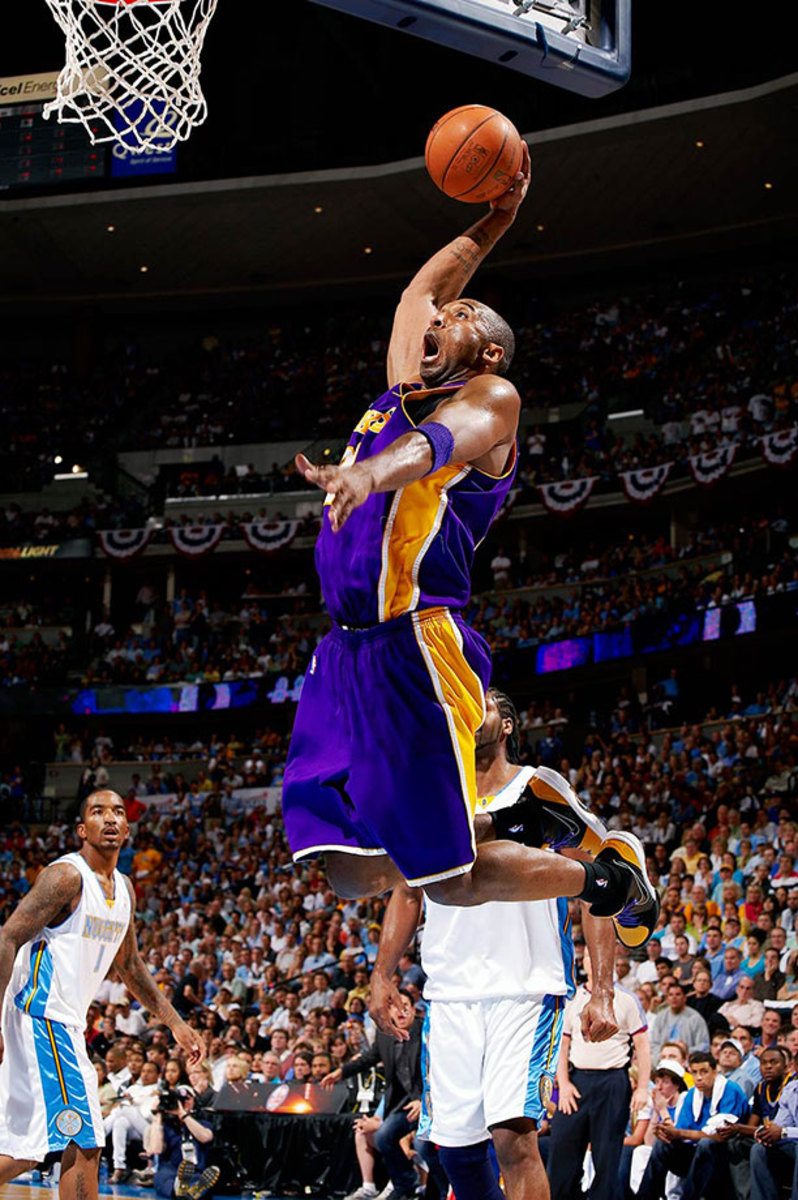
The Hornets took him for the Lakers, who traded Vlade Divac to Charlotte in a cap-clearing move that enabled them to sign Shaq that summer. Consider this to be a lucky place to find talent: In 1985, the Jazz drafted "undersized'' power forward Karl Malone at No. 13.
No. 14: Clyde Drexler, Portland Trail Blazers (1983)
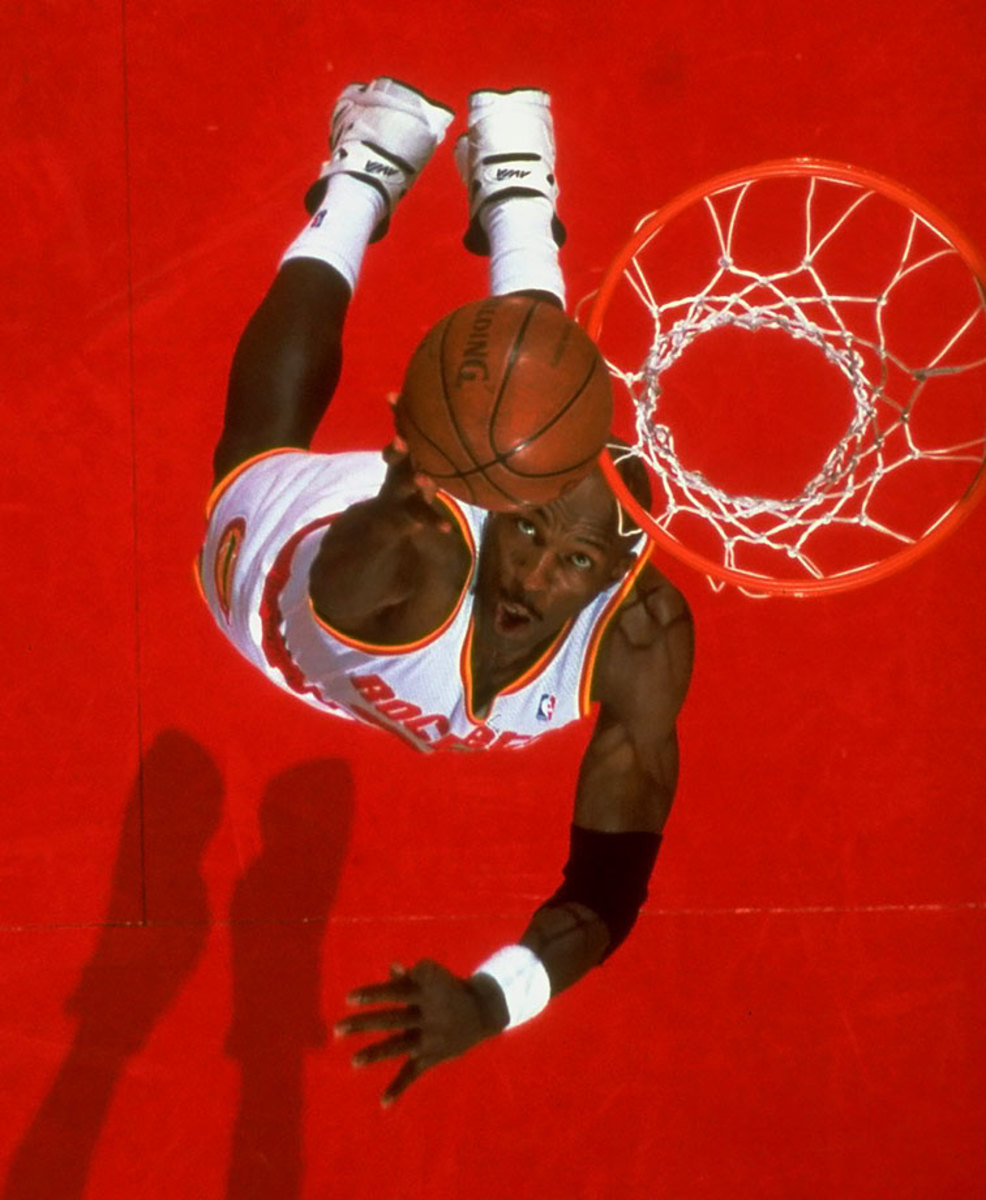
He turned out to be the best player in his draft. He lasted to this spot because his Phi Slamma Jamma years in college created the mistaken impression that he was a one-dimensional dunker, but he turned into a skilled and versatile Hall of Fame scorer who helped his former University of Houston teammate Olajuwon win a championship with the Rockets in 1995.
No. 15: Steve Nash, Phoenix Suns (1996)
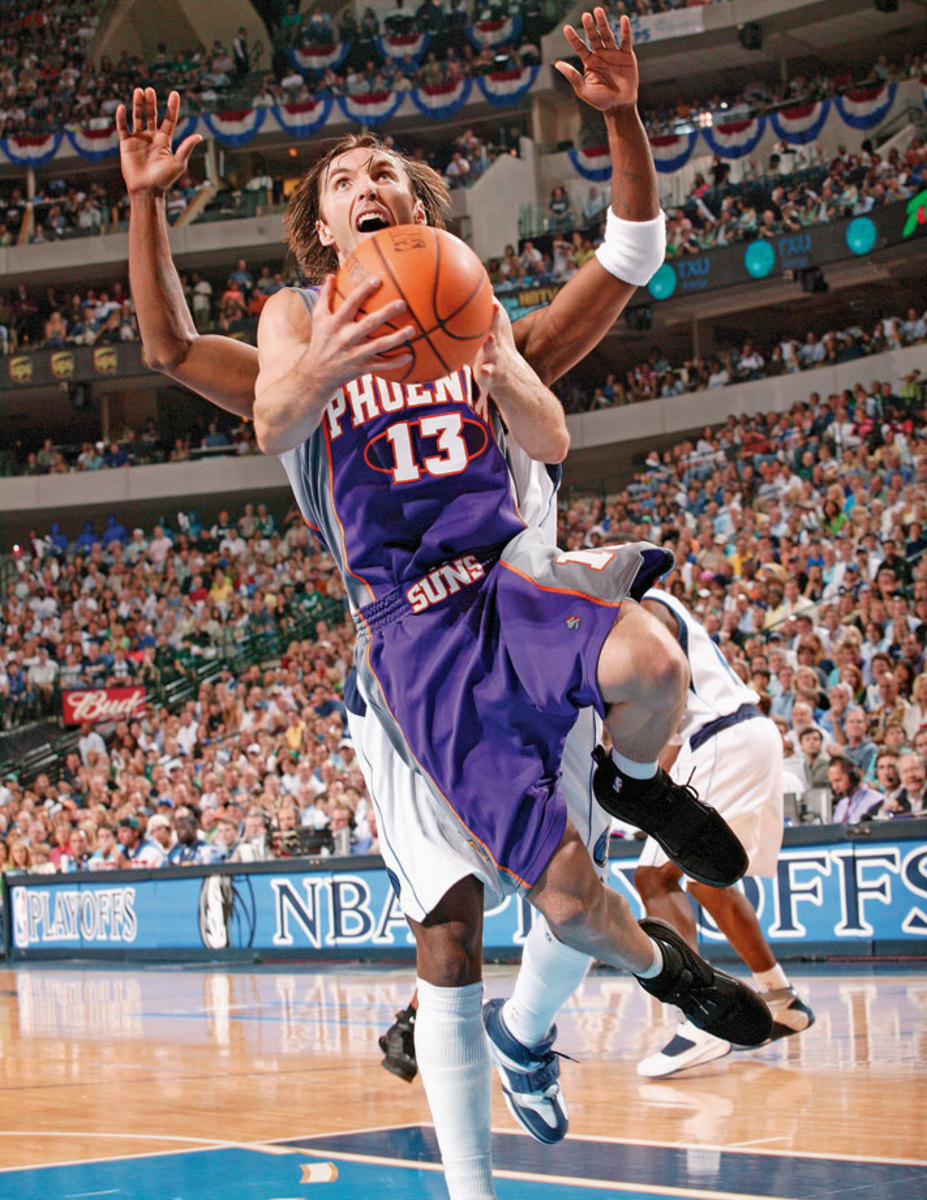
A self-made Canadian point guard with one NCAA scholarship offer (from Santa Clara), Nash began his pro career as the Suns' third-string point guard behind Jason Kidd and Kevin Johnson. Phoenix traded him in 1998 to Dallas, where he overcame a rough start to emerge as a star in his fifth NBA season. He then further surprised the Mavericks by blooming into a two-time league MVP after returning to the Suns as a free agent.
No. 16: John Stockton, Utah Jazz (1984)
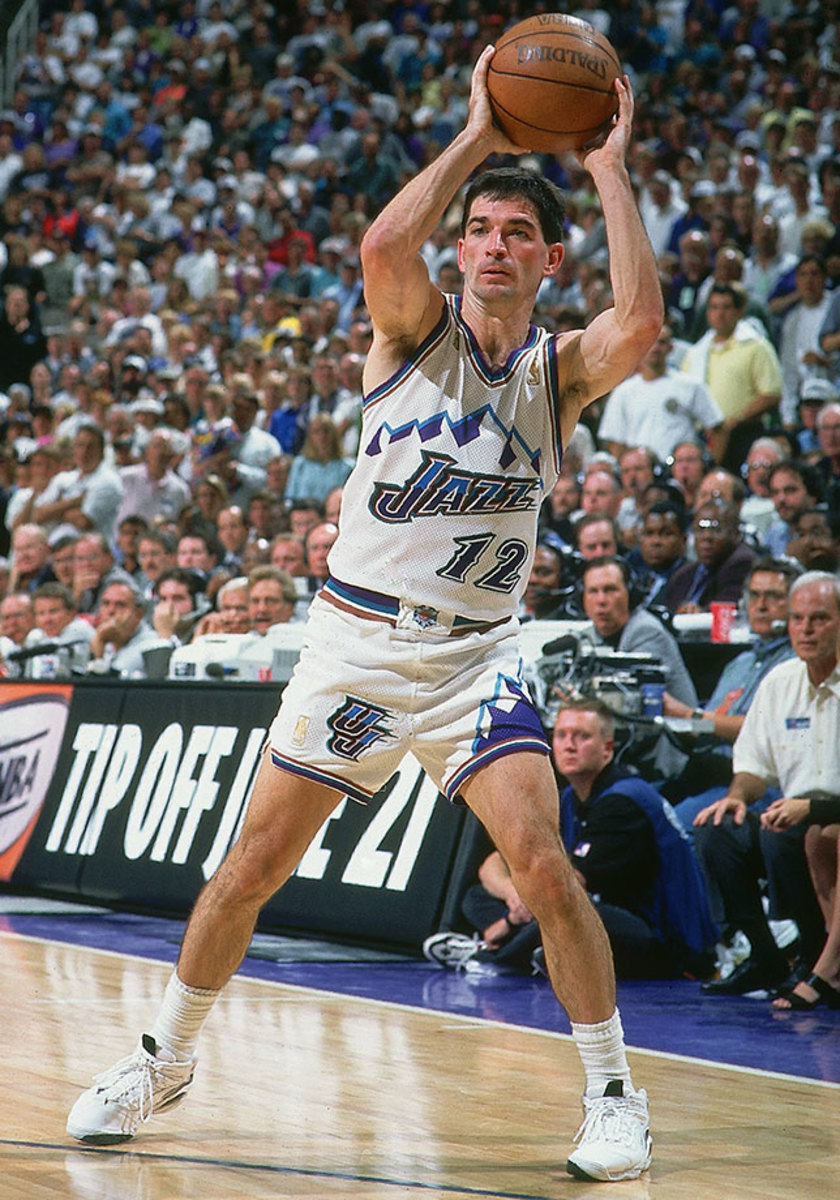
Picking up Stockton at No. 16 is like the 49ers discovering Joe Montana in Round 3 of the NFL draft. Ron Artest has been the next best player from this slot.
No. 17: Shawn Kemp, Seattle SuperSonics (1989)
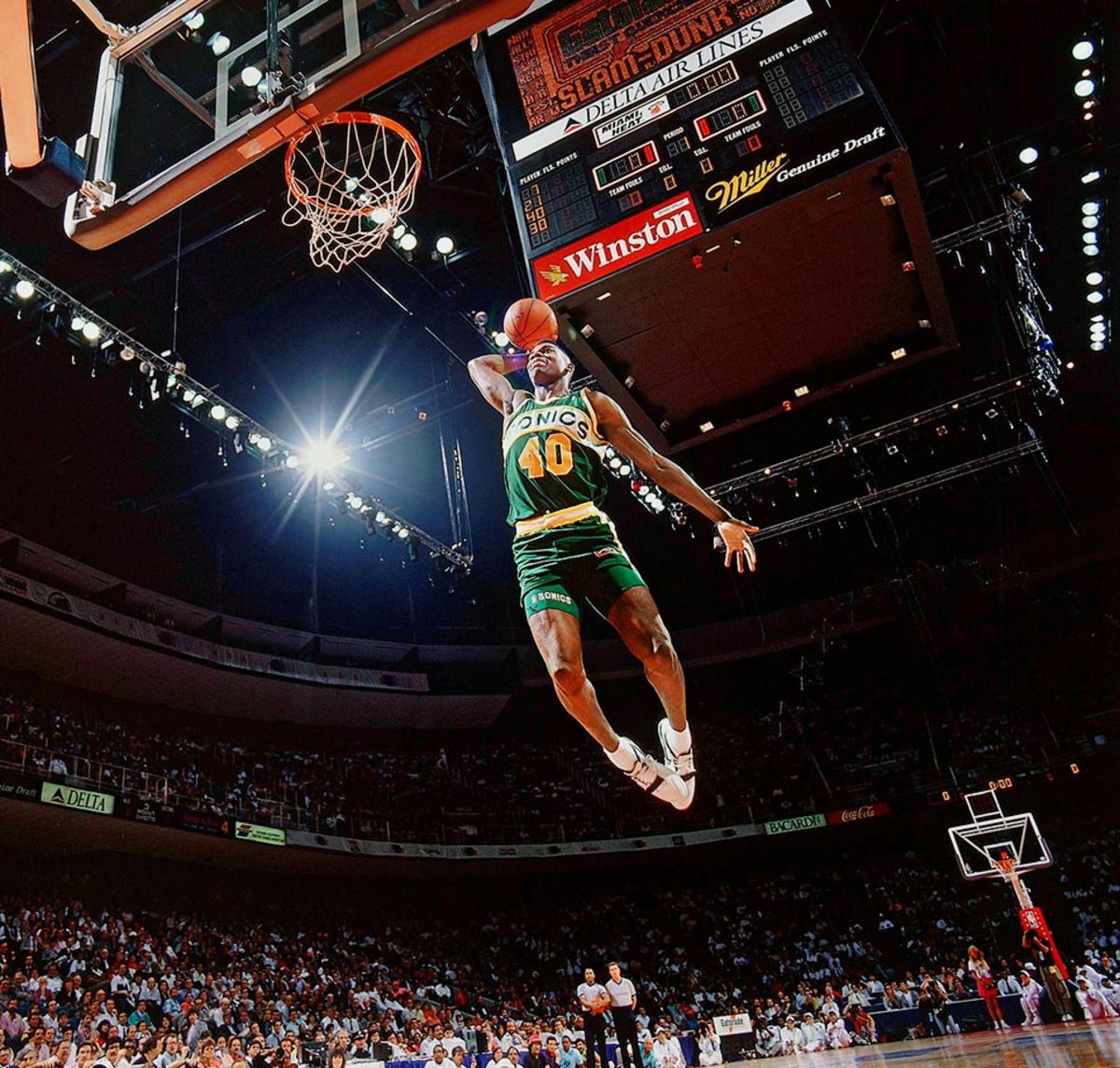
Entering the NBA as the youngest player in the league, the 6-10 Kemp turned into a six-time All-Star who joined with guard Gary Payton to lead Seattle to the 1996 Finals. He averaged 16.8 points and 9.5 rebounds over his 11-year career.
No. 18: Joe Dumars, Detroit Pistons (1985)
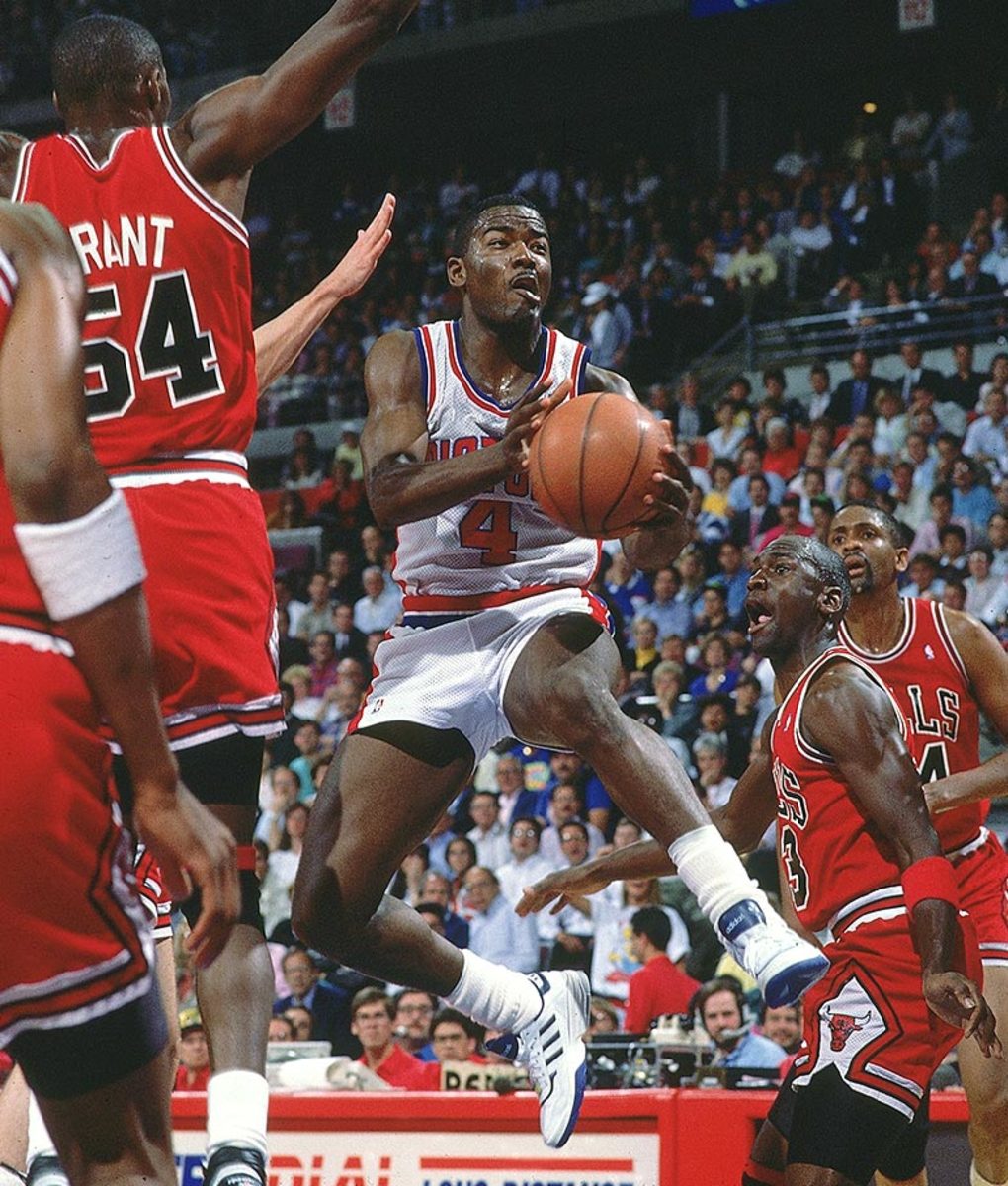
A complement to Isiah Thomas, the Hall of Fame guard helped the Pistons earn two championships (as well as another one two decades later as the team president). Calvin Murphy, Mark Jackson and David West were other surprisingly outstanding picks here.
No. 19: Tiny Archibald, Cincinnati Royals (1970)
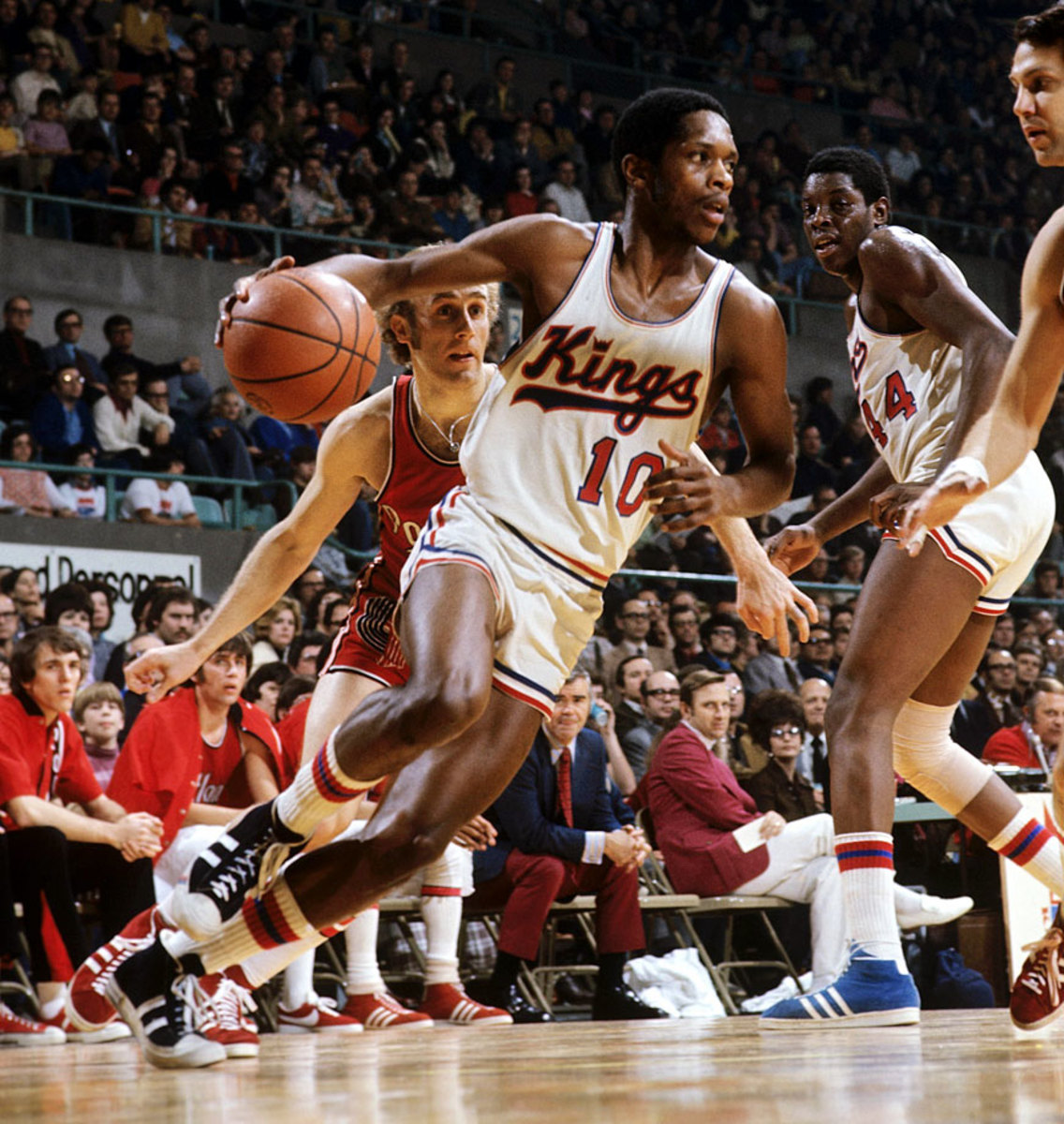
A small guard who could weave his way through any defense, the Hall of Famer led the NBA in scoring (34.0) and assists (11.4) in 1972-73, the only player to win both categories in the same season in league history. Rod Strickland (No. 8 on all-time assists list) and Bulls champion John Paxson also were picked here.
No. 20: Gus Williams, Golden State Warriors (1975)
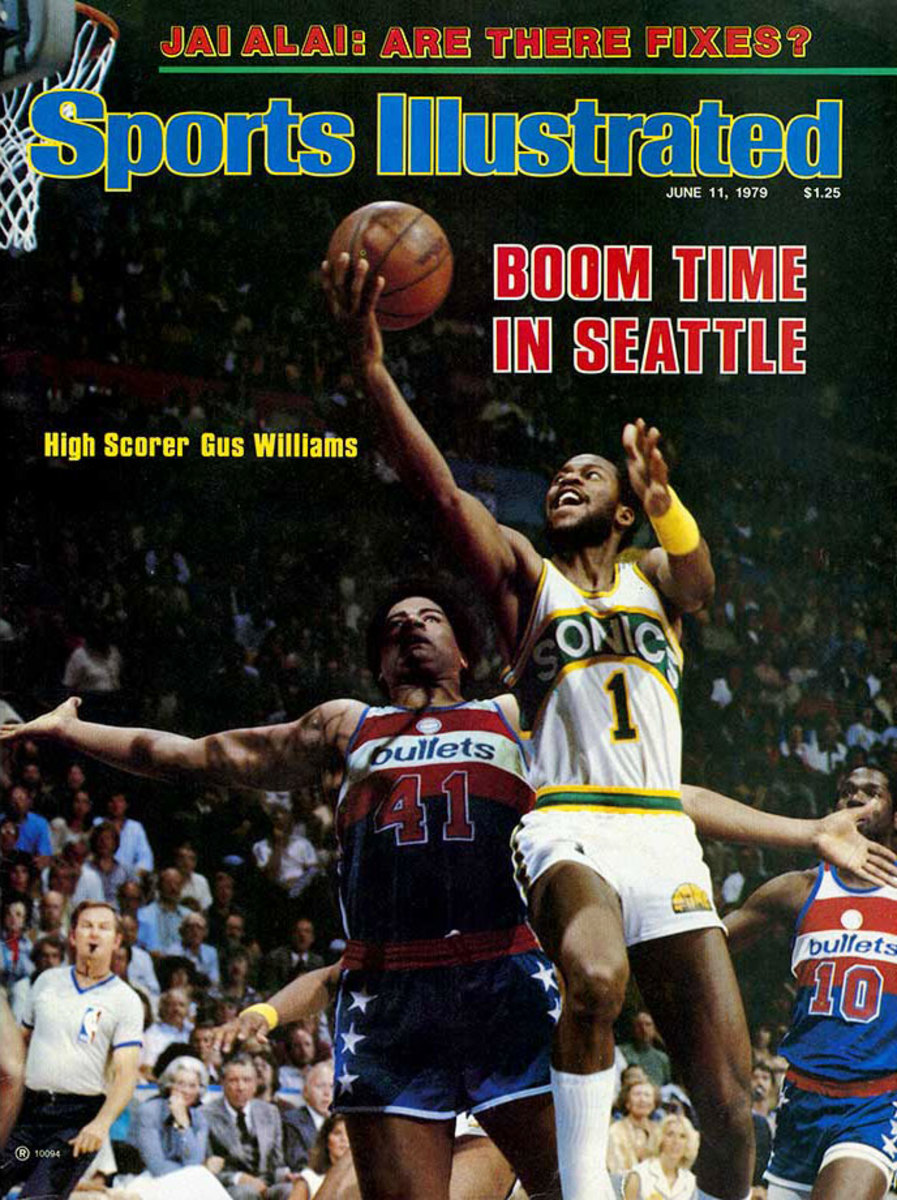
The two-time All-NBA guard averaged 17.1 ppg in 12 seasons, including six defining years with the Sonics, whom he led to the 1979 championship while averaging 28.6 points in the Finals.
No. 21: Michael Finley, Phoenix Suns (1995)
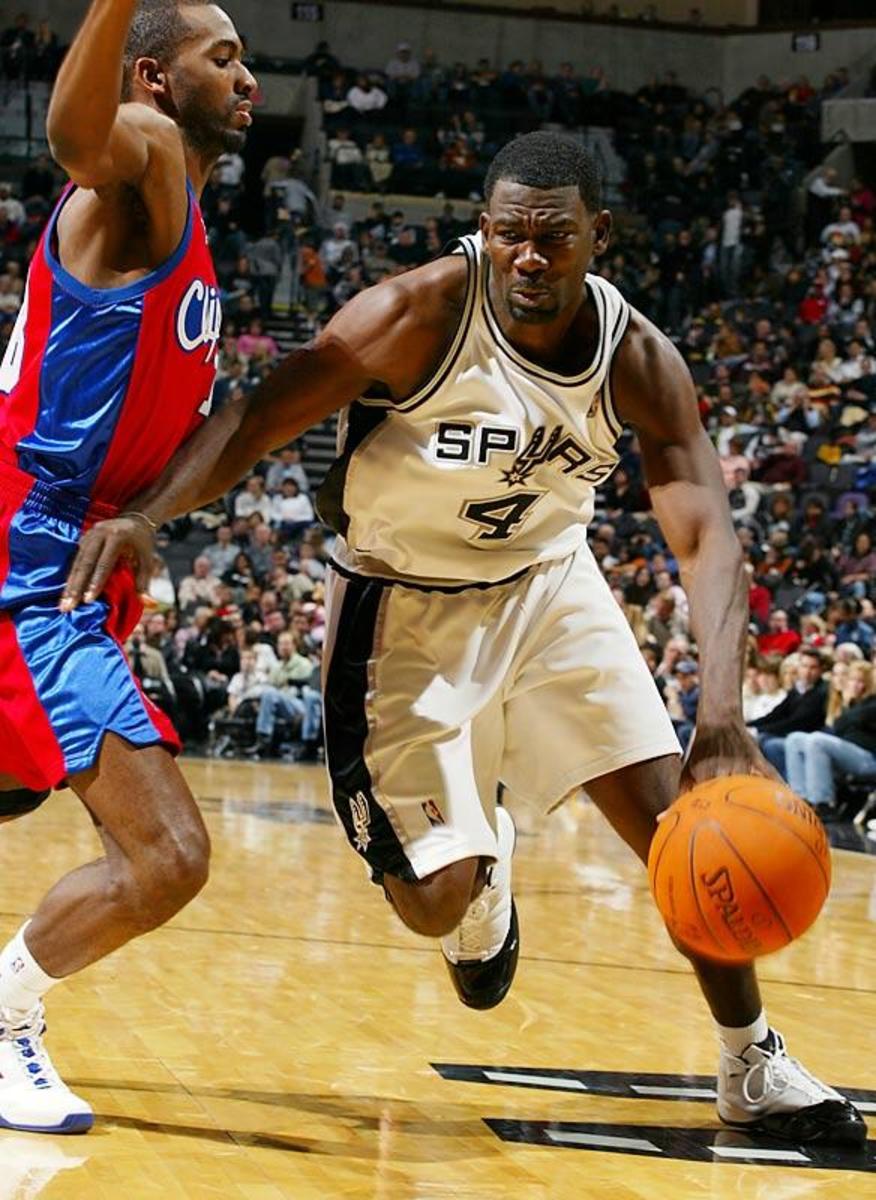
Rajon Rondo, drafted 21st in 2006, may be viewed as the best pick at this spot someday. For now, the choice is Finley, who turned into one of the league's elite scorers after being traded to Dallas, and later became a champion with the Spurs.
No. 22: Reggie Lewis, Boston Celtics (1987)
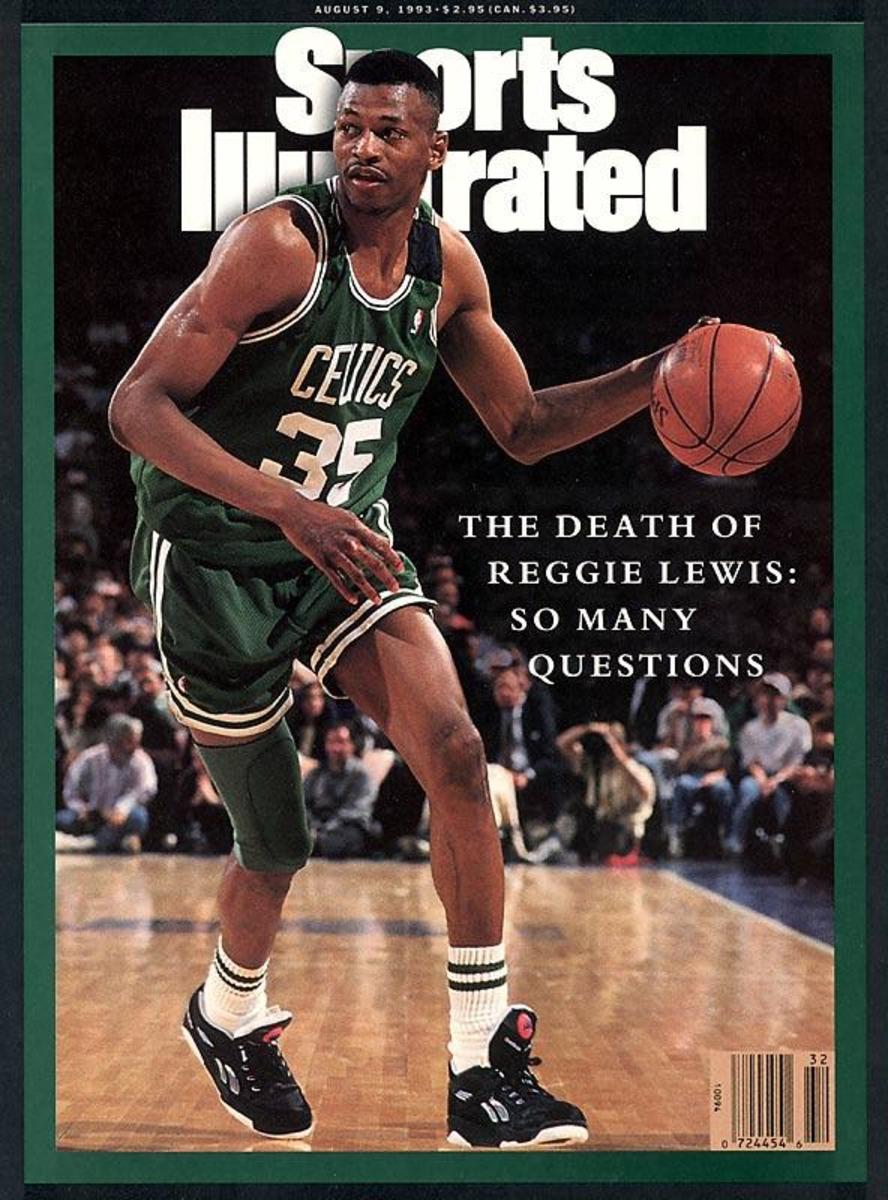
George McGinnis and Norm Nixon were fine choices here as well, but Lewis — a sixth man on his high school team — would have made multiple All-Star teams if not for the heart condition that killed him at age 27.
No. 23: Alex English, Milwaukee Bucks (1976)
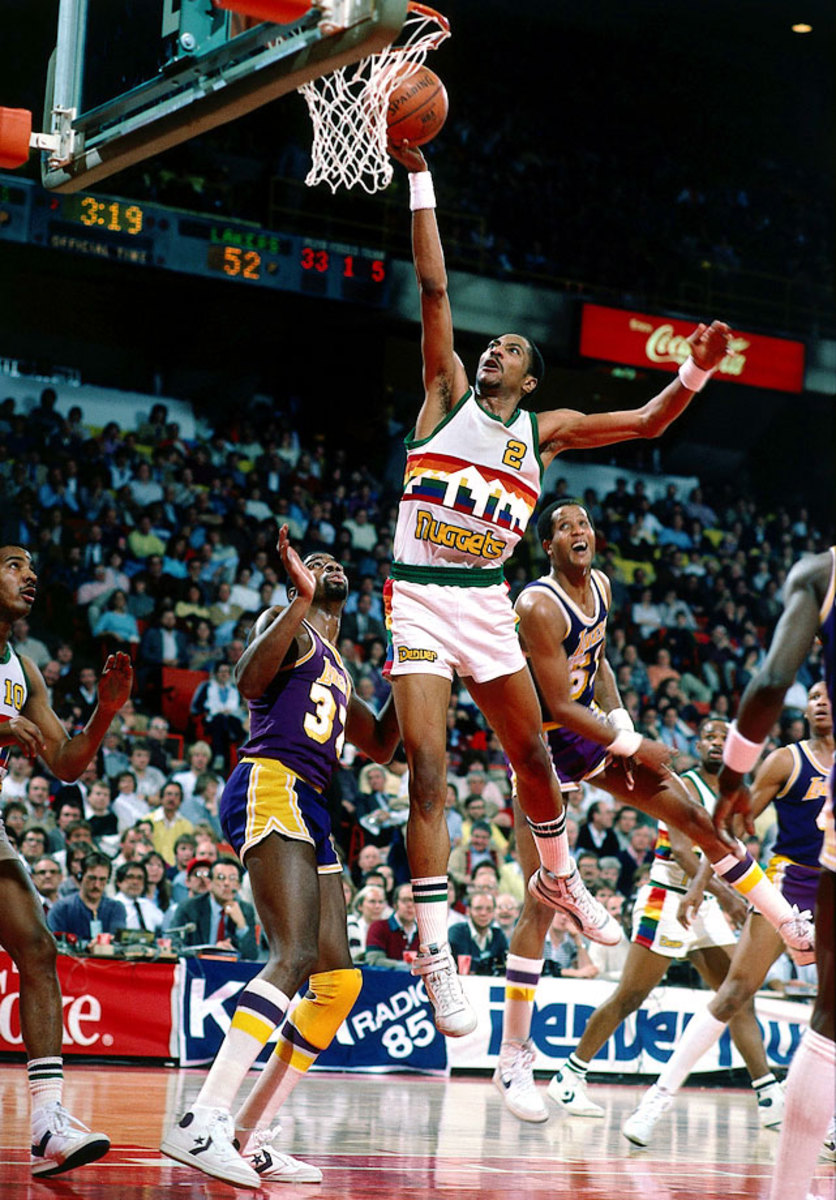
After three-plus middling seasons with Milwaukee and Indiana, the second-round pick (the NBA had fewer teams then) found his niche with the score-first Nuggets. When he retired in 1991, the future Hall of Famer was the NBA's No. 6 all-time scorer.
No. 24: Sam Cassell, Houston Rockets (1993)
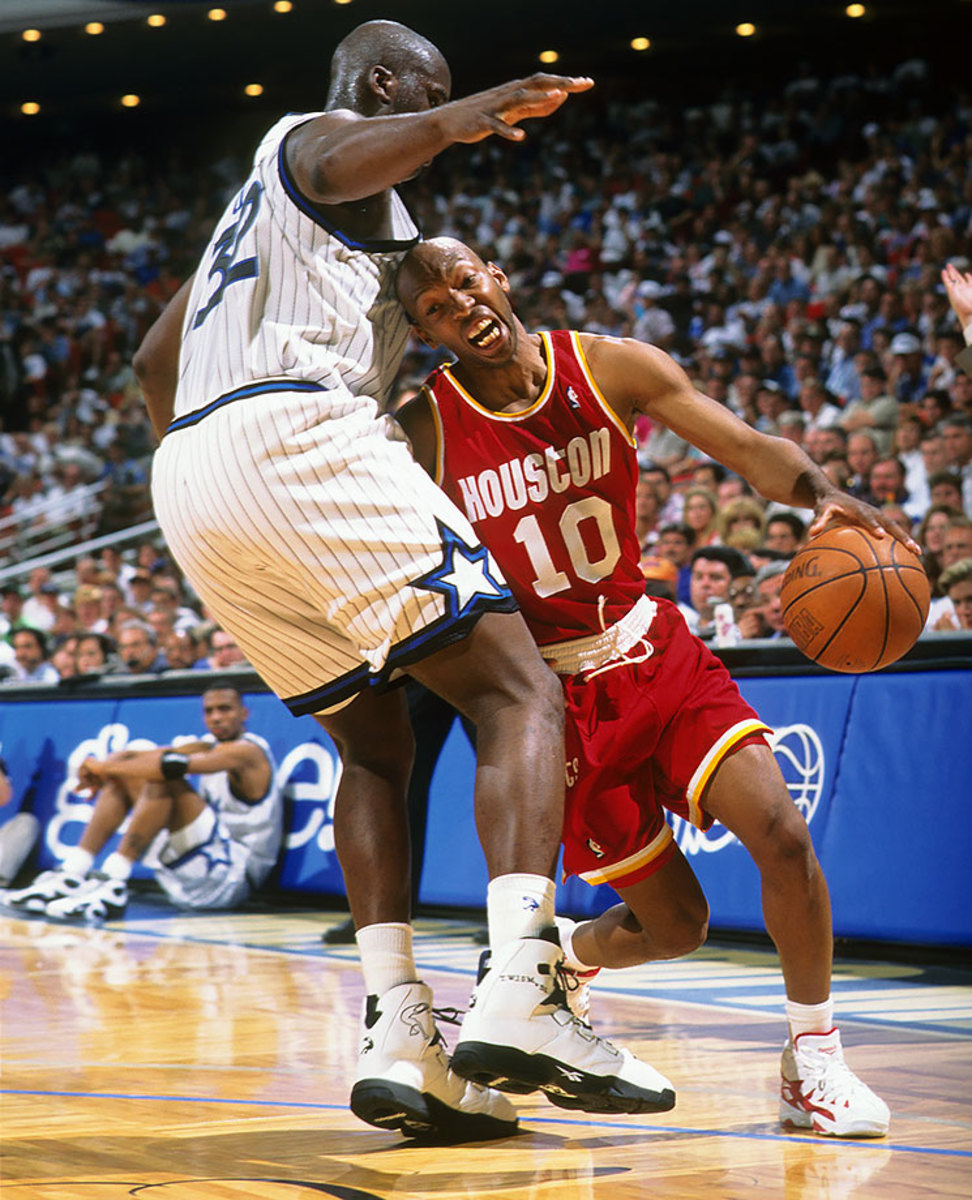
Talk about a steal: As a late-pick rookie, Cassell helped lead the Rockets to their first NBA championship. It was no fluke, as his 16-year career would attest. A lot of long-term value has been unearthed at No. 24, including Arvydas Sabonis, Andrei Kirilenko and Latrell Sprewell, as well as Lakers champions Rick Fox, Brian Shaw and Derek Fisher.
No. 25: Mark Price, Dallas Mavericks (1986)
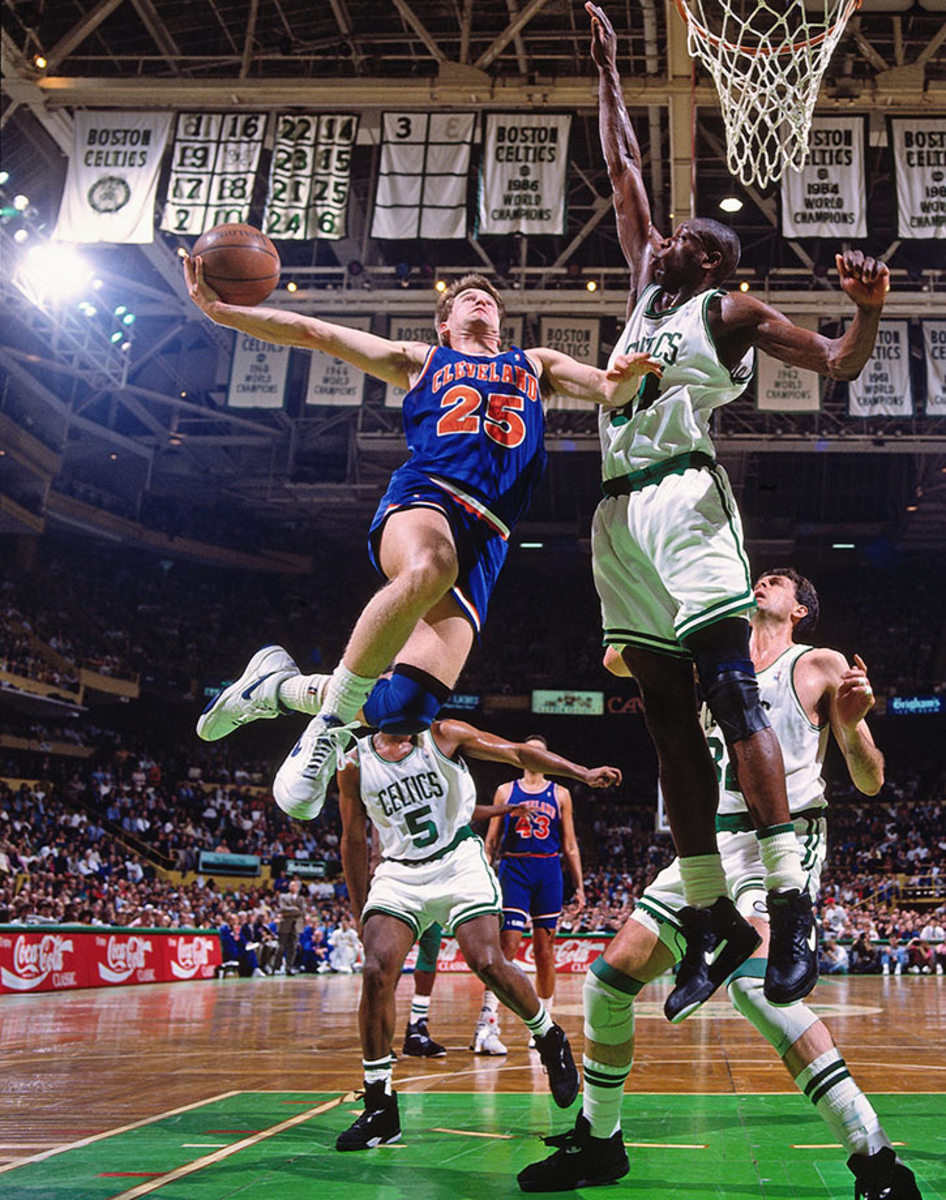
He was the face of the Cavaliers for a decade as well as a surprisingly effective shooter for his size. Price edges out John Drew, Gerald Wallace and Bob Gross, the small forward on Portland's 1977 championship team.
No. 26: Vlade Divac, Los Angeles Lakers (1989)
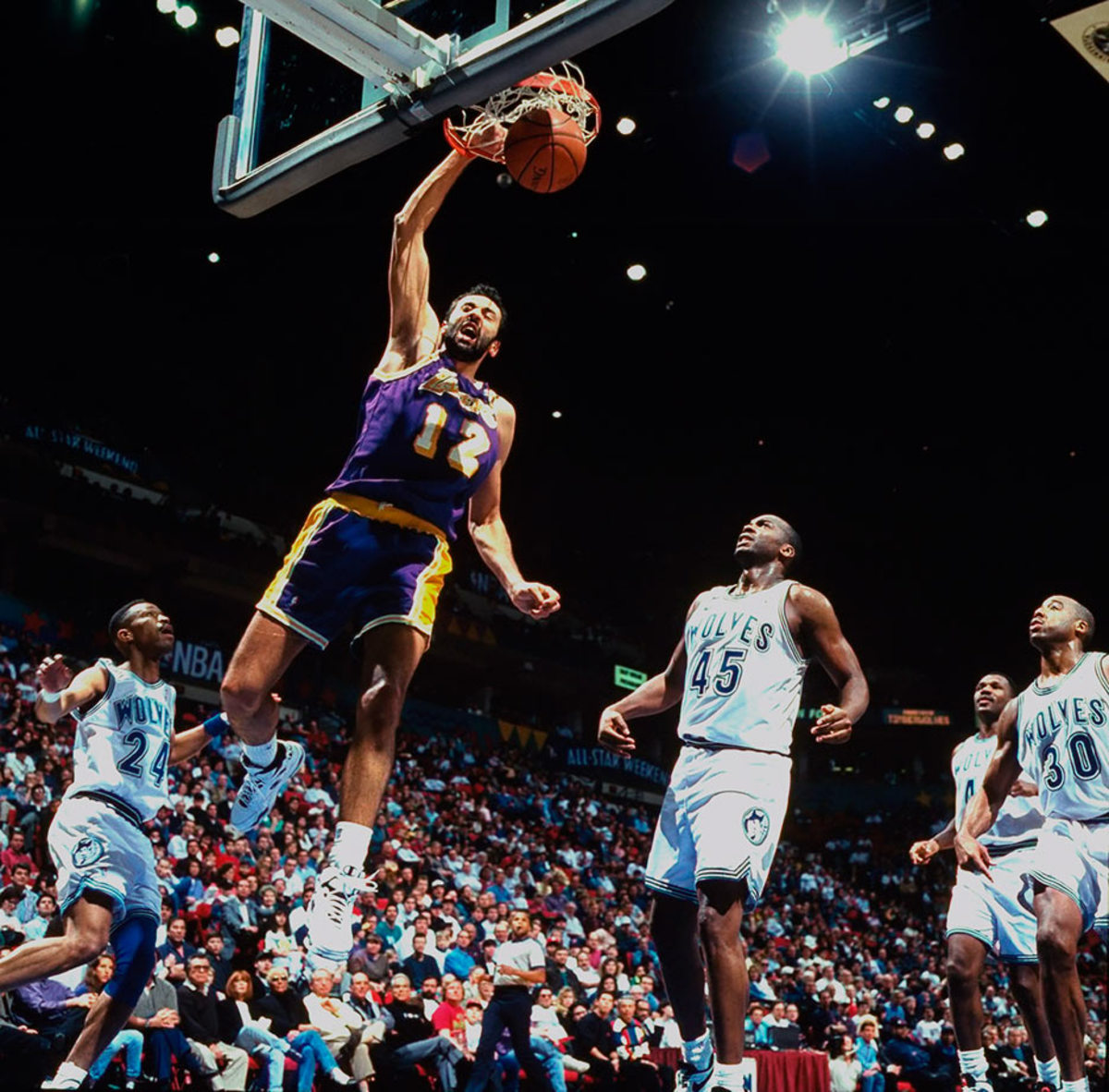
How often do you get a 16-year center this late in the draft? Divac was one of the best passing big men in the modern era.
No. 27: Dennis Rodman, Detroit Pistons (1986)
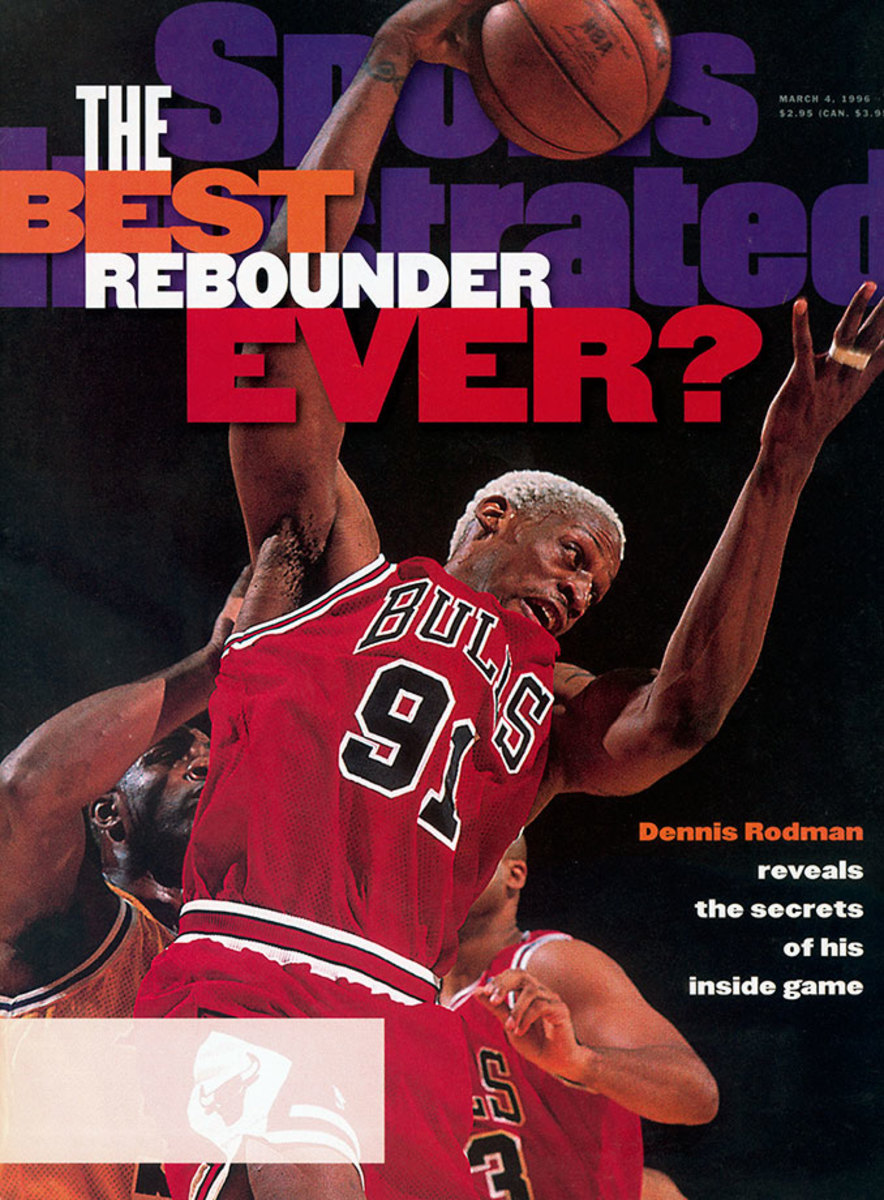
He became so much more than anyone could have predicted — in all kinds of ways. Rodman contributed to five championship teams in Detroit (two) and Chicago (three), exemplifying the kind of high-effort defender and rebounder teams are often seeking with a late pick.
No. 28: Tony Parker, San Antonio Spurs (2001)
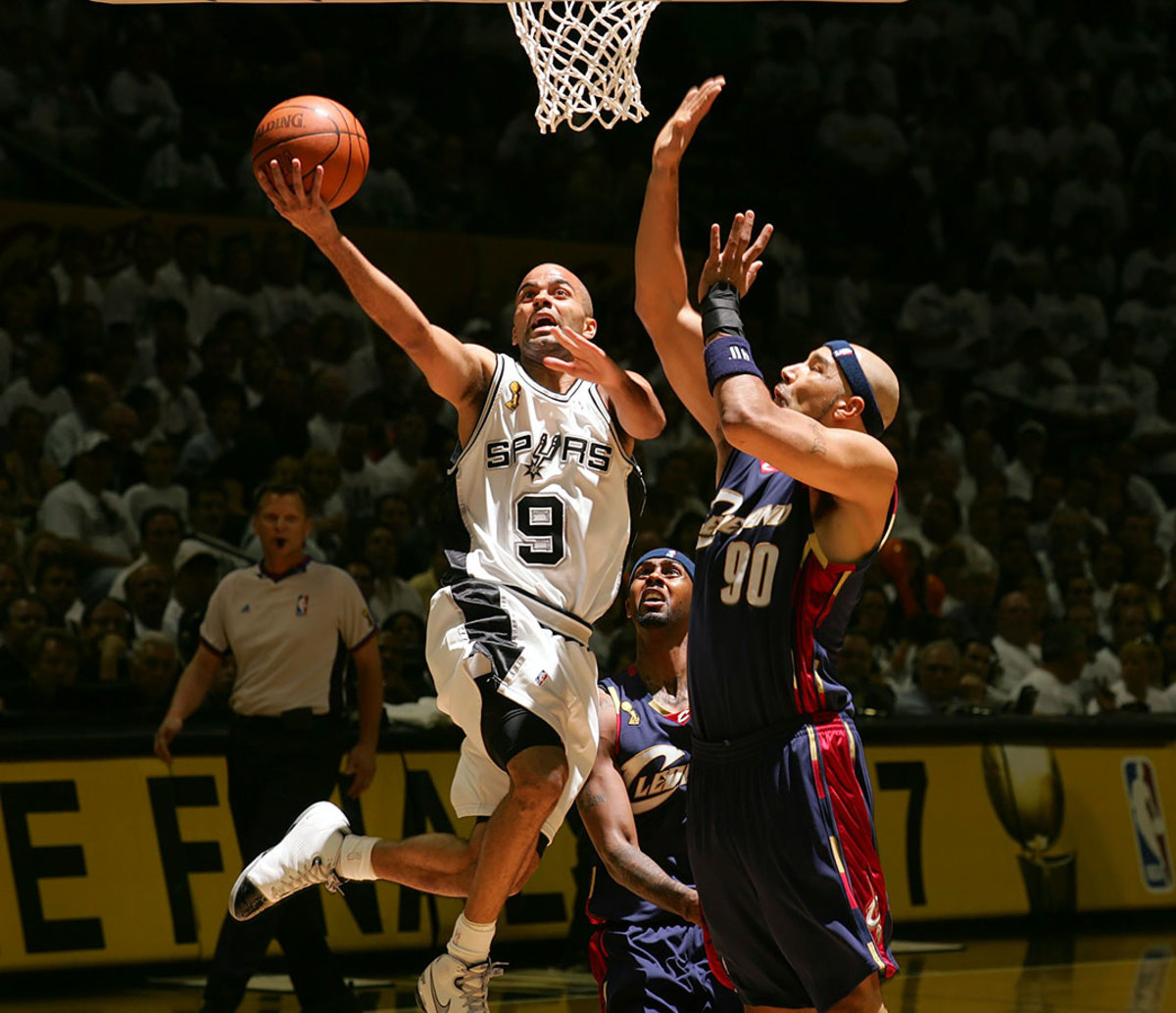
Yes, the Spurs were lucky to win the lottery twice when David Robinson and Tim Duncan were the No. 1 picks. But they also discovered Manu Ginobili at No. 57 and their elite point guard and future NBA Finals MVP at this slot.
No. 29: Dennis Johnson, Seattle SuperSonics (1976)
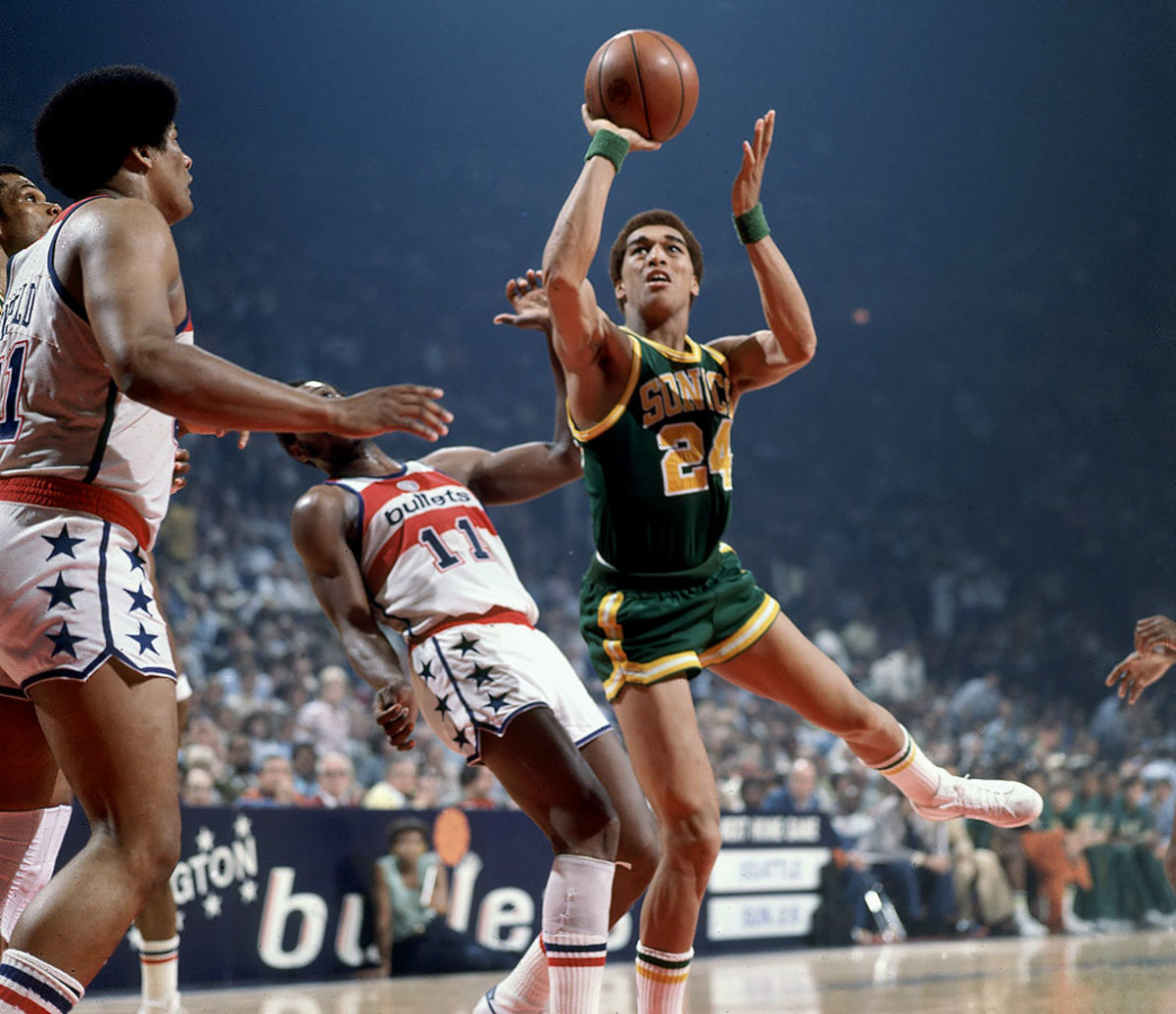
Johnson was never viewed as a great shooter; he nonetheless helped lead Seattle and Boston to three championships combined while playing the kind of defense that posthumously earned him a place in the Hall of Fame.
No. 30: Gilbert Arenas, Golden State Warriors (2001)
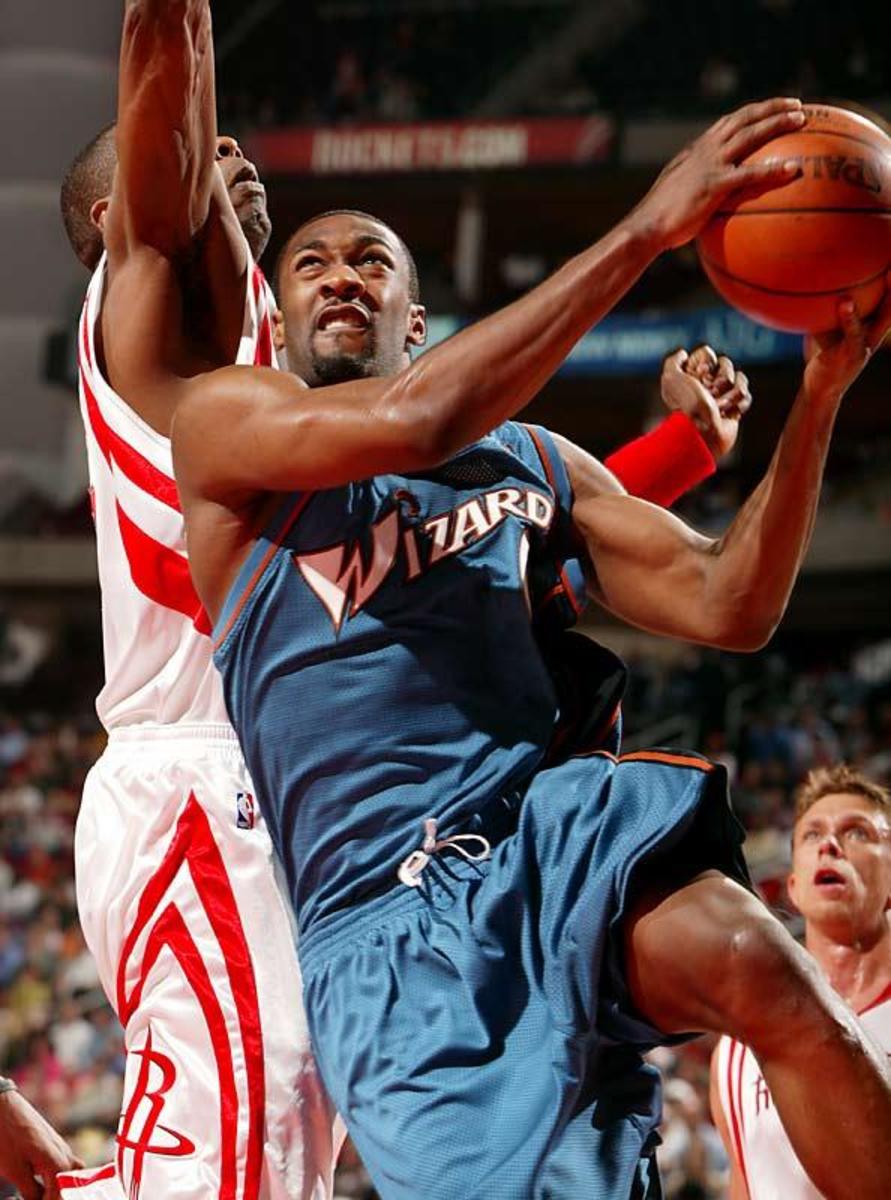
Arenas drew laughs at his introductory Golden State news conference when he predicted he would be a starter in his rookie year. Not only did he prove to be correct in that assessment, but he also turned into an All-NBA point guard with the Wizards.
RM: I know a lot of guys when they come into the NBA, you start hearing from everybody you've ever known—congratulations, people looking for things, offering advice. Has anybody given you any bad advice since coming into the NBA? Any weird investment opportunities?
BH: Nah, nobody gives me bad advice. Everybody's been in congratulation mode. You know what I mean? But I know my work is not done.
RM: What does the rest of the off-season look like for you?
BH: I want to take some time off but I'm pissed off so I can't take no time off. I don't know—just grinding. I'll probably go to the Bahamas and have one of the coaches come down there and work with me. That's probably it.
RM: If you did have that time off, what would you do? Where would you go?
BH: I like to travel. You can travel, but you're trying to get better. Take off two weeks and you can get out of shape. It's a rookie season so you wanna have that first impression. I'm gonna have that first impression like, okay, I belong in this league. I'm just gonna grind it out, man. Everybody say I need rest but I haven't made it yet. Yeah, I've got a rookie contract or whatever, but I haven't made it yet. I need to lock in on the things I need to fix and whenever I get time, whenever I feel comfortable with my game, then I can take a break. But for now, there's no days off.
RM: When do you think that break will come? When will you start to feel comfortable?
BH: Whenever I figure it out.
RM: I know things can go pretty fast from the draft to summer league, then you're getting into the gym to work a little bit and all of a sudden its training camp. Has the pacing of all of this surprised you at all?
BH: It's been fast-paced. Everything has been fast. Life is just...crazy. You know what I mean? Back and forth. You're just living the life you thought you'd never live but every day you've gotta do something. Somebody's calling you, and if you don't answer your phone, somebody's trying to get to you. It's annoying but it's the life you choose. You've gotta live with it.
RM: What are your impressions of New Orleans so far?
BH: It's cool. It's hot. But it's a good city—reminds me of back home. Next to the ocean, people are nice, they've embraced me well. Can't go wrong with that.
RM: Have you found a place to live already? What is that process like? You're just kind of dropped into a new place and have to figure things out. Does the team help you with that? How do you settle in?
BH: It's just like me going and moving from the Bahamas to Wichita, Wichita to Oklahoma. It's just life. You've gotta adjust. You've just gotta adjust through it. Everything's been all fast-paced where you're in a rhythm and you're not comfortable. When I get comfortable, when I settle my place, when I'm not traveling back and forth—where I can stay in one place for like a month or two, I'll be fine.
RM: What was it like to live in Oklahoma?
BH: It's different. The weather, the environment, the culture. It's different but it's something you'll adapt to. Oklahoma my first year was fast—obviously you're in college, you're a freshman, having fun. But in my second year you get locked in. You feel comfortable. It's an all-the-time adjustment. When you go somewhere you're not gonna adjust right away the way you want to. Just like everybody say [they want to go to] California because the weather's nice, but they're not gonna adjust right away because they don't know the lifestyle yet. It's just an adjustment to the lifestyle and everything.
• Fredette still holding onto NBA dream | Onuaku brings 'granny shot' to NBA
RM: How would you describe the lifestyle there?
BH: Oklahoma? It's laid-back. Country. They do country things. Go out, go to the bars—it's a bar state. Everybody go to the bars. College town. It's cool.
RM: I know you mentioned playing with AD and how that opens things up for a lot of the guys. In terms of the rest of the team, is there anybody in particular you're looking forward to seeing how your game will play off of?
BH: Jrue [Holiday]. You've got guys like Langston [Galloway]. He's a worker. He came from nothing. You know what I mean? He had to work his way up to get signed, two-year deal. He came from nothing and also I'm looking to compete against those guys and I'll feed off my energy and find whatever I can do just to get better, man.
RM: What are your impressions of Jrue's game?
BH: I haven't watched much film on him but I know he's quick. I know he's a guard who can make plays for the team. I'm just trying to pick his brain, watch more film on him, and see where I can get my shots. When I start playing with guys like him and AD and all those guys, I feel like I'll be okay.
